Movies
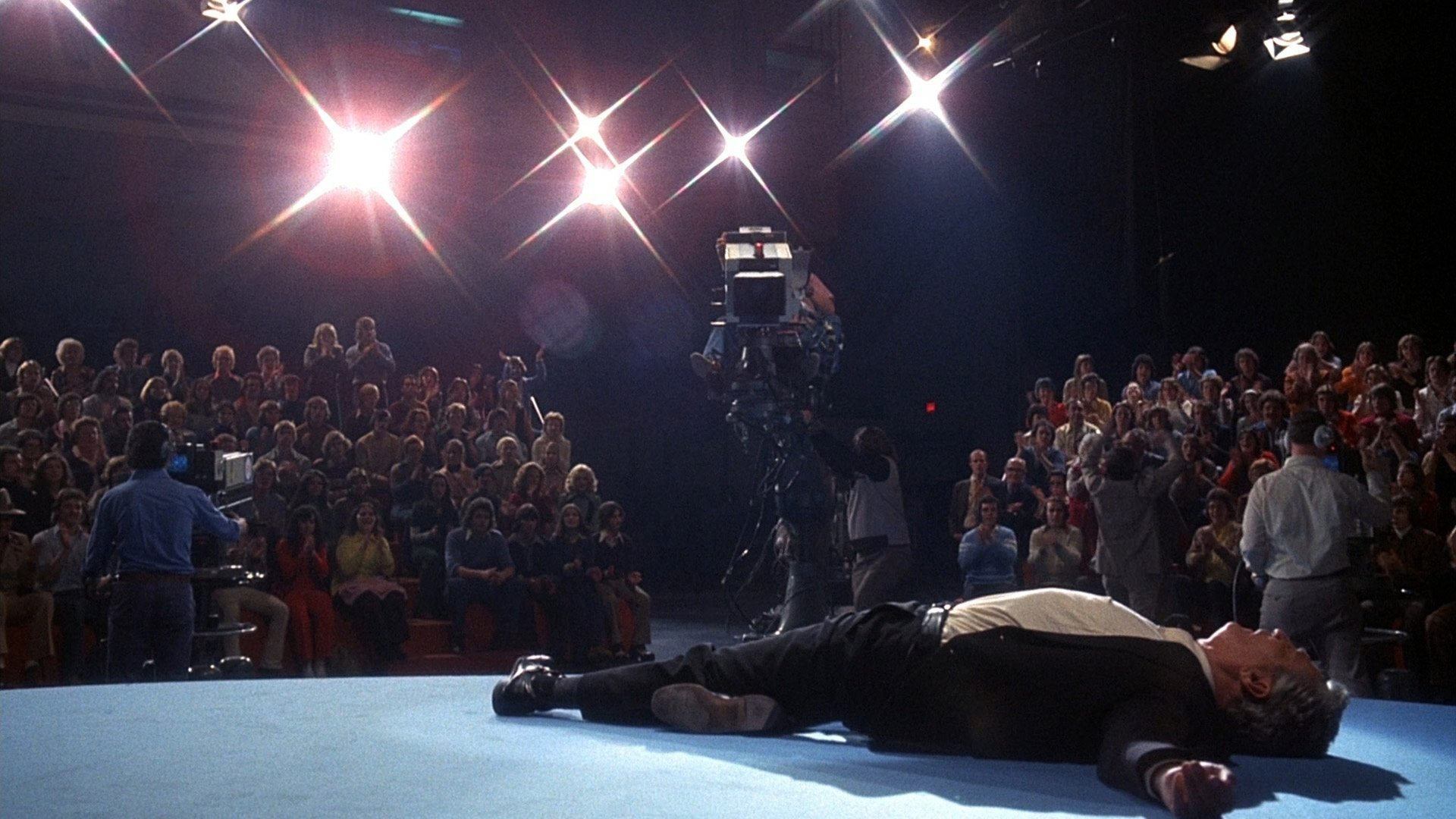
Sidney Lumet’s brutal satire of capitalist mass media has been on my list for a relatively short time.
Since this film is way older than I am, I don’t really have a personal sense to gauge how the culture of its time was in relation to the message of the movie, especially in a, by then, foreign culture like the US, but its cynicism proved to be a bullseye hit.
The film centers on the excesses of television stations, namely the exploitation of sensationalist content and the ruthless abolition of rigour and taste in the pursuit of higher audience numbers.
While the particulars of the plot are centered, of course, on TV, we can see the same patterns in modern media, “influencer” culture, and Internet algorithmic-driven content, making Network seem oddly prescient.
In the end, it just means that, unless we put care and attention, mass communication media can be easily exploited, putting us all in a race to the bottom. Dehumanizing us in order to sustain a flawed system.

If I remember correctly, this is my first Wim Wenders movie. And what an incredible way to start experiencing his filmography.
Wenders has been dubbed the master of the road movie, however we could say about Paris, Texas that it has road movie elements, without fully being one.
That’s not a bad thing, as the way the film transforms and adapts as the story matures is one of the great joys of watching it.
If I have to highlight a couple of elements in the film, they would be the amazing performance of Harry Dean Stanton, in a rare lead role, and the beautiful photography throughout the entire movie. Half-empty gas stations and desert roadside bars have never looked so good.

I’ve had this one on my list for a long time, and I’m afraid it might have been past its best-by date for me.
I get it. This looks like a movie that can impact someone very much if they encounter it at a particular age, in a particular moment of our history as a species.
Watching it now in 2025 didn’t have the same impact for me, unfortunately.
And you can be sure that I’m not against slow-paced, near silent movies. —Kim Ki-duk’s 3 Iron is one of my favorites— However this one didn’t hit for me.
But hey, if you want to see a tale about an OCD Japanese librarian living in Bangkok, and his entanglement in the lives of a local Thai woman, and the Yakuza, you may want to check it out.
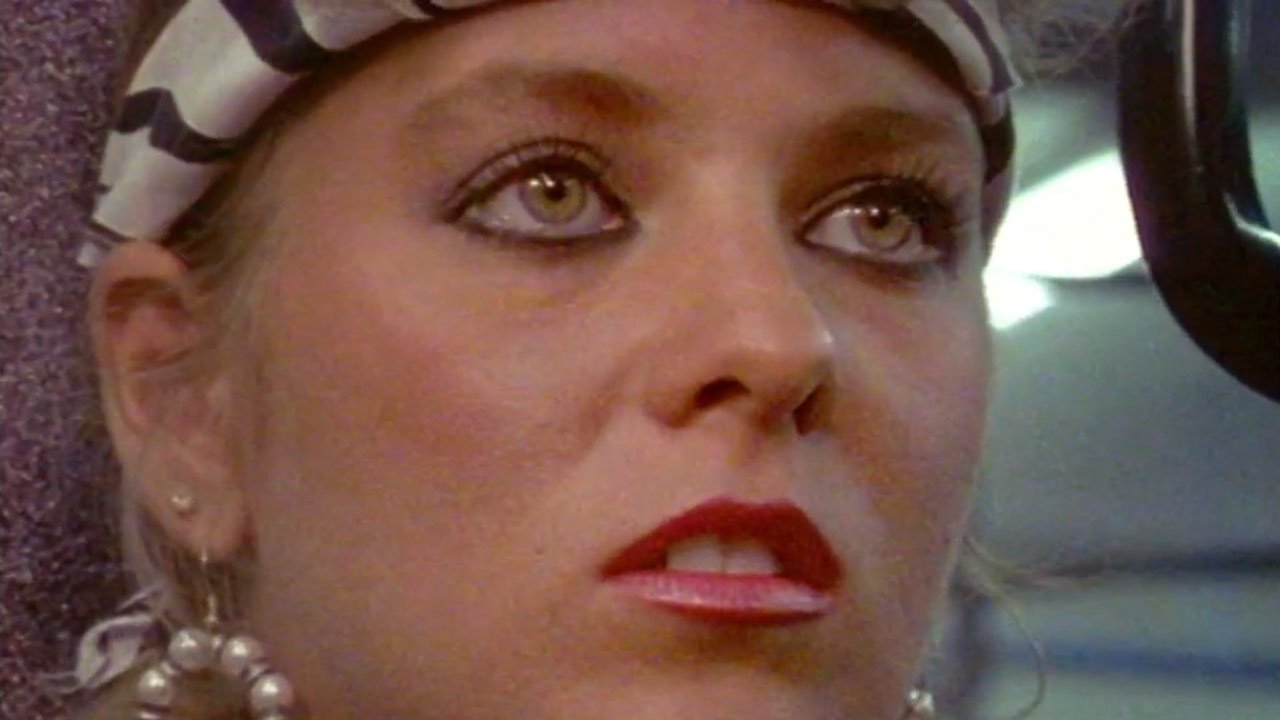
Adam Curtis is a filmmaker I wasn’t very familiar with before becoming aware of HyperNormalisation. From then on, he’s become one of my go-to documentary directors. I don’t think you’ll see me review much of his work here since he most often favors the mini-series format, but HyperNormalisation is a feature film, and therefore fits well here.
This is a film that explores the new dispositives of power on what’s been called the “post-truth” era. The rise of the financial class calling the shots, and the increased apathy, fragmentation and isolation that western hyper-individualistic cultures find themselves immersed in.
Like most documentaries, it shows, of course, a bias in the information it presents to craft a narrative, but it nevertheless contains a dense quantity of thought-provoking material. Further research is left as en exercise to the audience, one I will emphatically encourage.
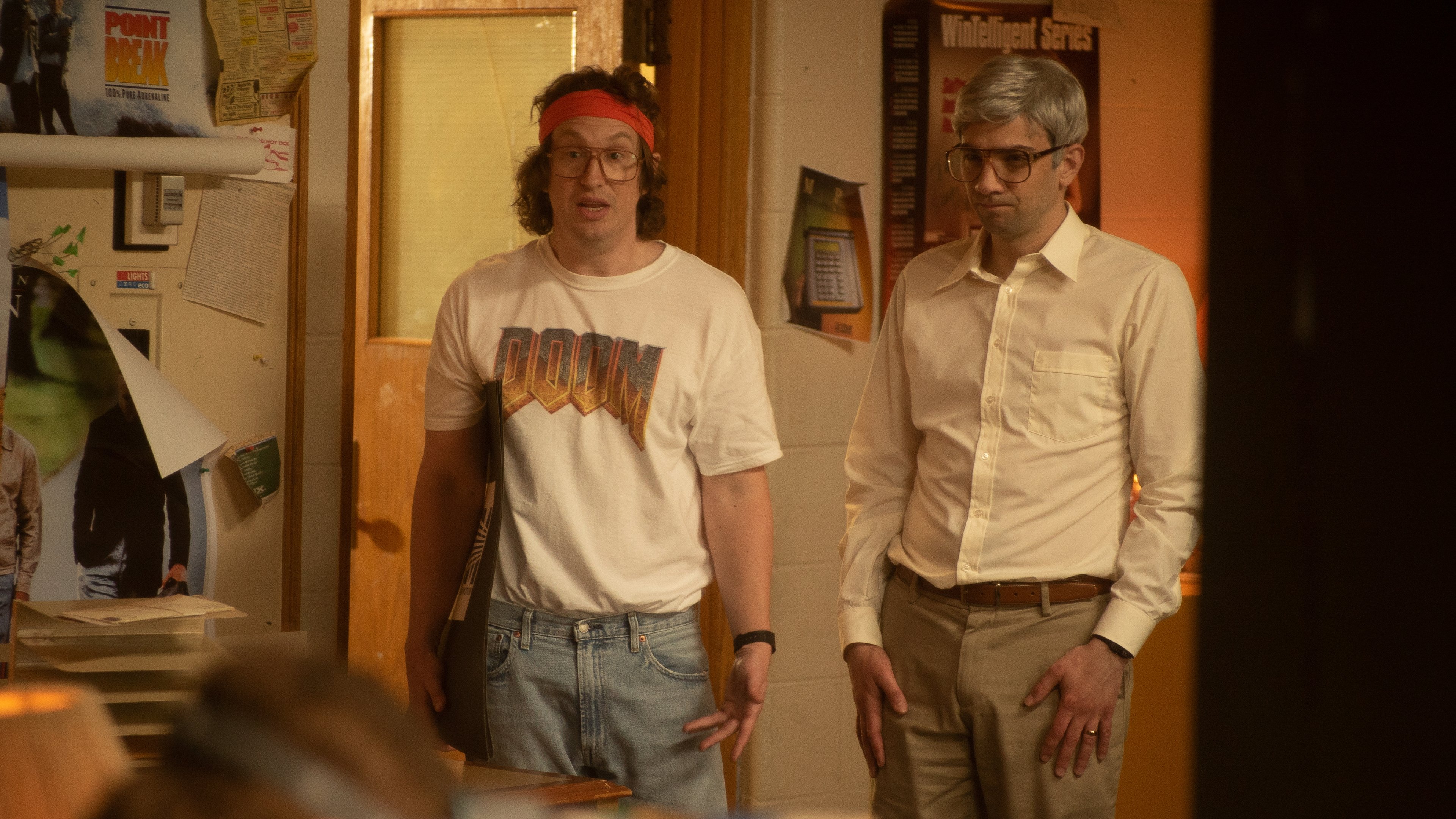
I certainly wasn’t expecting to find a movie about the history of the Blackberry company, much less one full of Canadian comedians and some YouTube personalities. It’s a very good one, too!
It must have had poor marketing, because it flopped pretty hard at the box office. Coming out at the tail end of the pandemic probably didn’t help either.
The plot follows the entire arc of the company that built Blackberry phones, the rise in size and tech advancements, and its eventual fall due to a double whammy from of the consequences of corrupt management in one side, and Apple’s release of the iPhone on the other.
The movie was directed by Matt Johnson, of Nirvanna The Band fame, who also plays Doug Fregin, the sidekick of Mike Lazaridis, founder of Blackberry. Likely not by coincidence, one of the coolest characters in the movie.
Despite its light tone, the film does a really good job of establishing the big personalities and major players involved in the development of the company, and manages to create some poignant character moments as well.
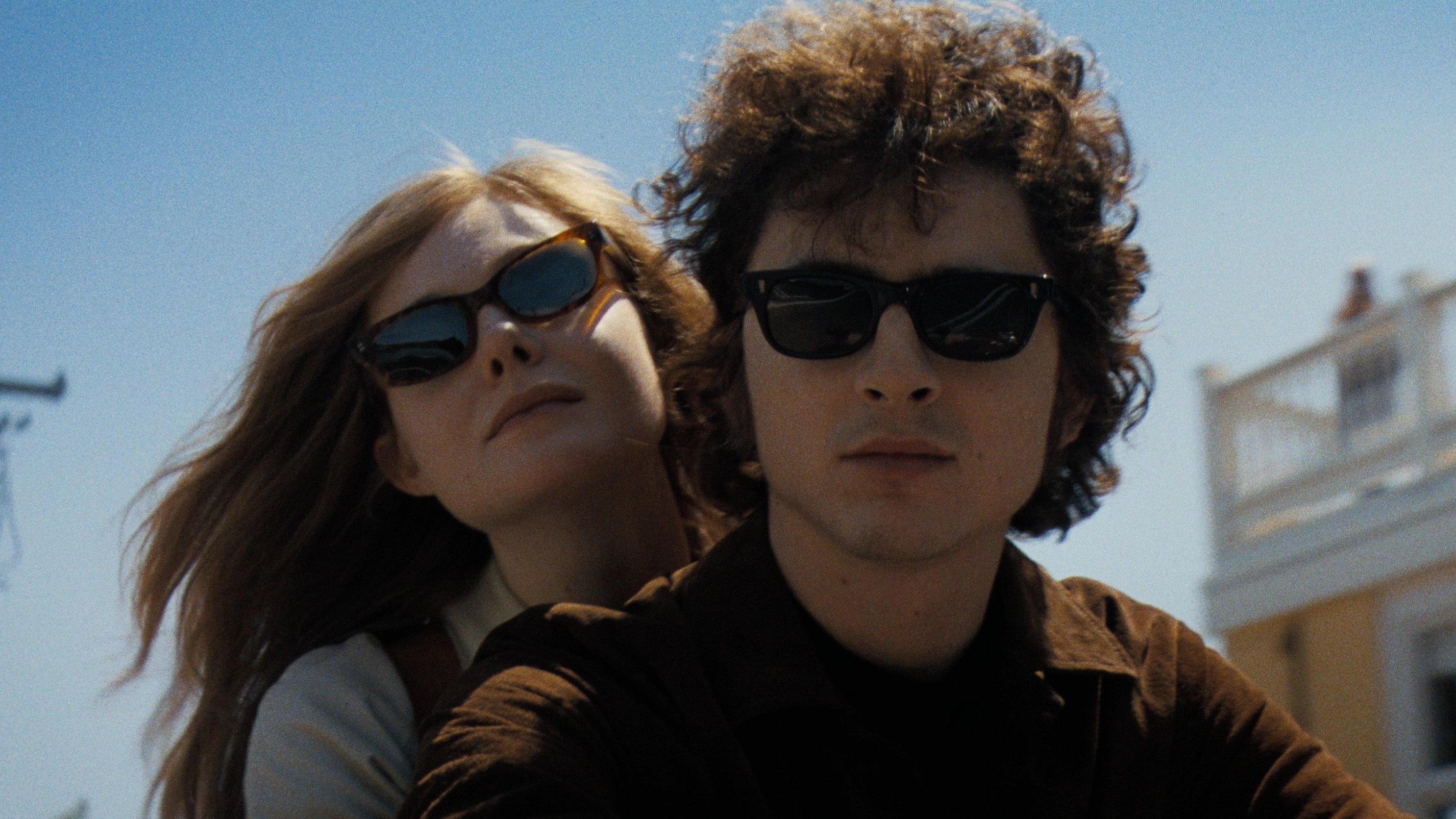
It is a musical biopic. Not really much more I can say. It follows the formula, has some musical numbers interspersed with plot, and so on. I imagine one might enjoy it more if they are fans of Bob Dylan and/or his music.
I’ve heard Timothee Chalamet’s performance has been praised, but to me, it just looked lazy and fake. I understand that this may be due to my unfamiliarity with Bob Dylan’s mannerisms, and he might have seemed lazy and fake in person as well (which would make this a correct portrayal).
I didn’t personally get much out of it, but your mileage may vary.
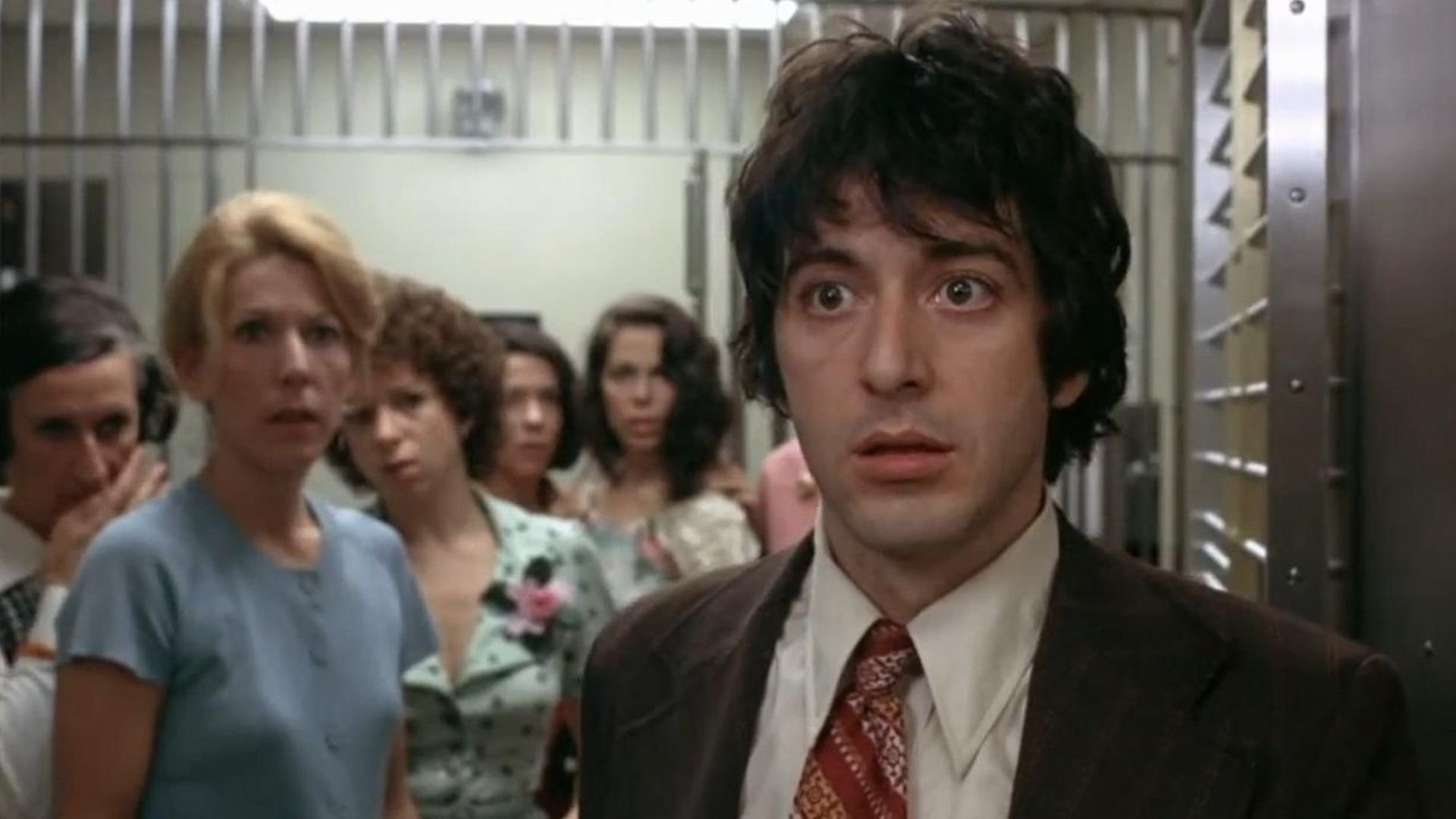
Another Sidney Lumet classic. Although not as often cited as Network, I find Dog Day Afternoon is a more straightforwardly entertaining film. Following the real-life story of a bank robbers Sonny and Sal, hitting up a branch office in Brooklyn, things go off the rails and the story and motivations for the robbery slowly get revealed.
For some reason, there was a brief blip in the algorithm around June which resulted in increased mentions of John Cazale, who played Sal in the movie, and Dog Day Afternoon got mentioned a few times. By that point I had already seen the film months ago, but I found it interesting. It just happened that the year I watched this film for the first time happened to be Cazale’s 90th anniversary.
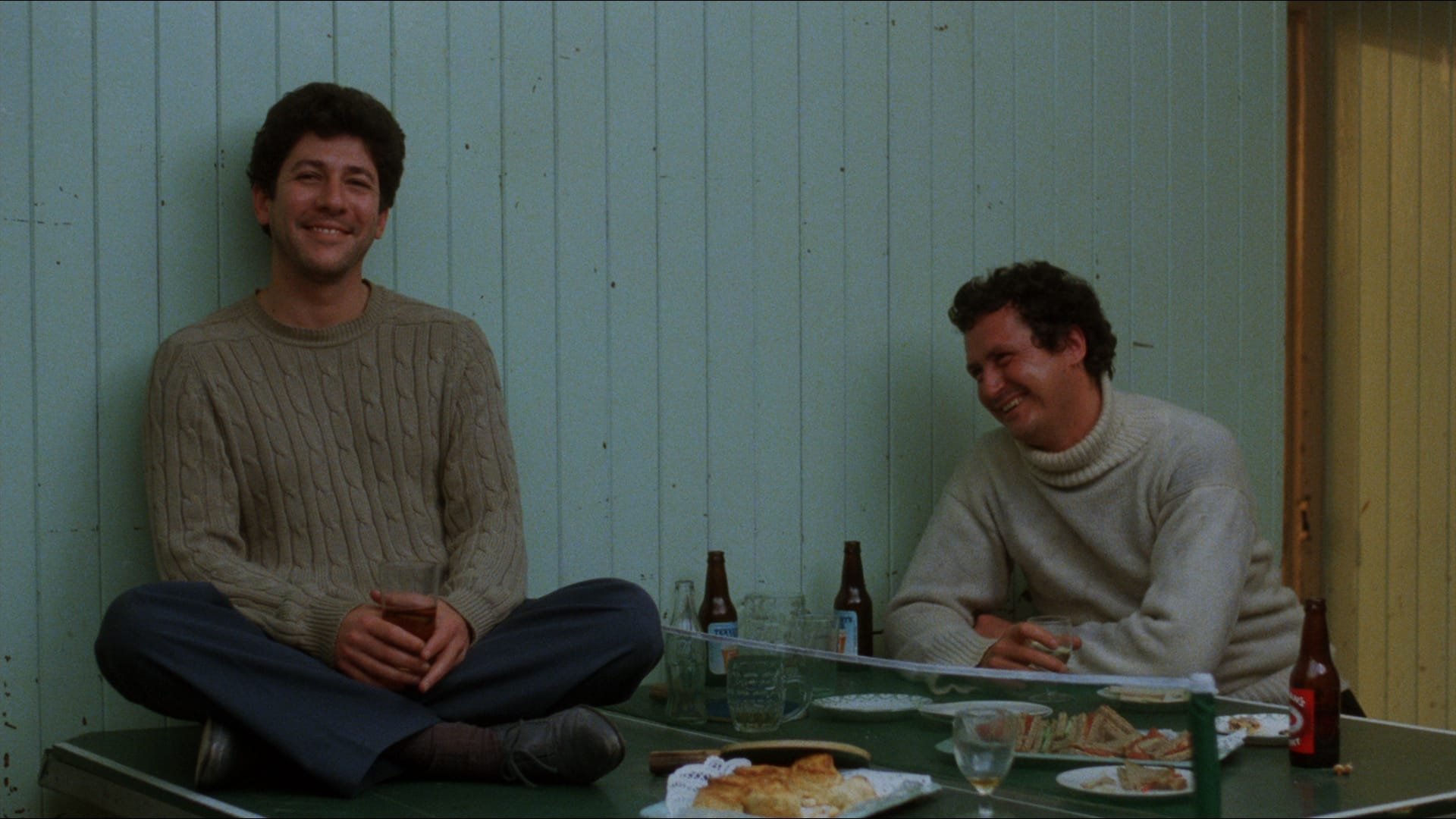
One day, going through a YouTube rabbit hole, I learned about the subgenre of low-stakes, feel-good comedies that the production company Ealing studios was famous for in the 40s and 50s, but this is not about any of those movies. It is, rather, about the kind of movies Bill Forsyth made in the 80s, out of love of that 40s subgenre. In particular, Local Hero.
An American petrochemical company has plans to buy a new refinery, then sends a disenchanted businessman to Scotland to buy the village of Ferness, but once he arrives there, things don’t go as smoothly as he expected.
It is indeed a feel-good comedy. The inhabitants of Ferness are happy to be bought by a big corporation, and indeed through Gordon, who is both the accountant and the local inn owner —played by Denis Lawson, of Wedge Antilles fame— they try to negotiate the price up to make everyone in the sleepy fishing village a millionaire.
And it is also low-stakes. The world is deliberately depicted in a laid-back, take it easy way. Even the president of the petrochemical company is more of an eccentric guy who inherited an oil business than a ruthless industrialist with no qualms about destroying the coast of Scotland with a refinery complex.
One shouldn’t search for political messaging or realistic depictions in these films. They are meant to evoke a different vibe, and sometimes, that’s very refreshing and human.
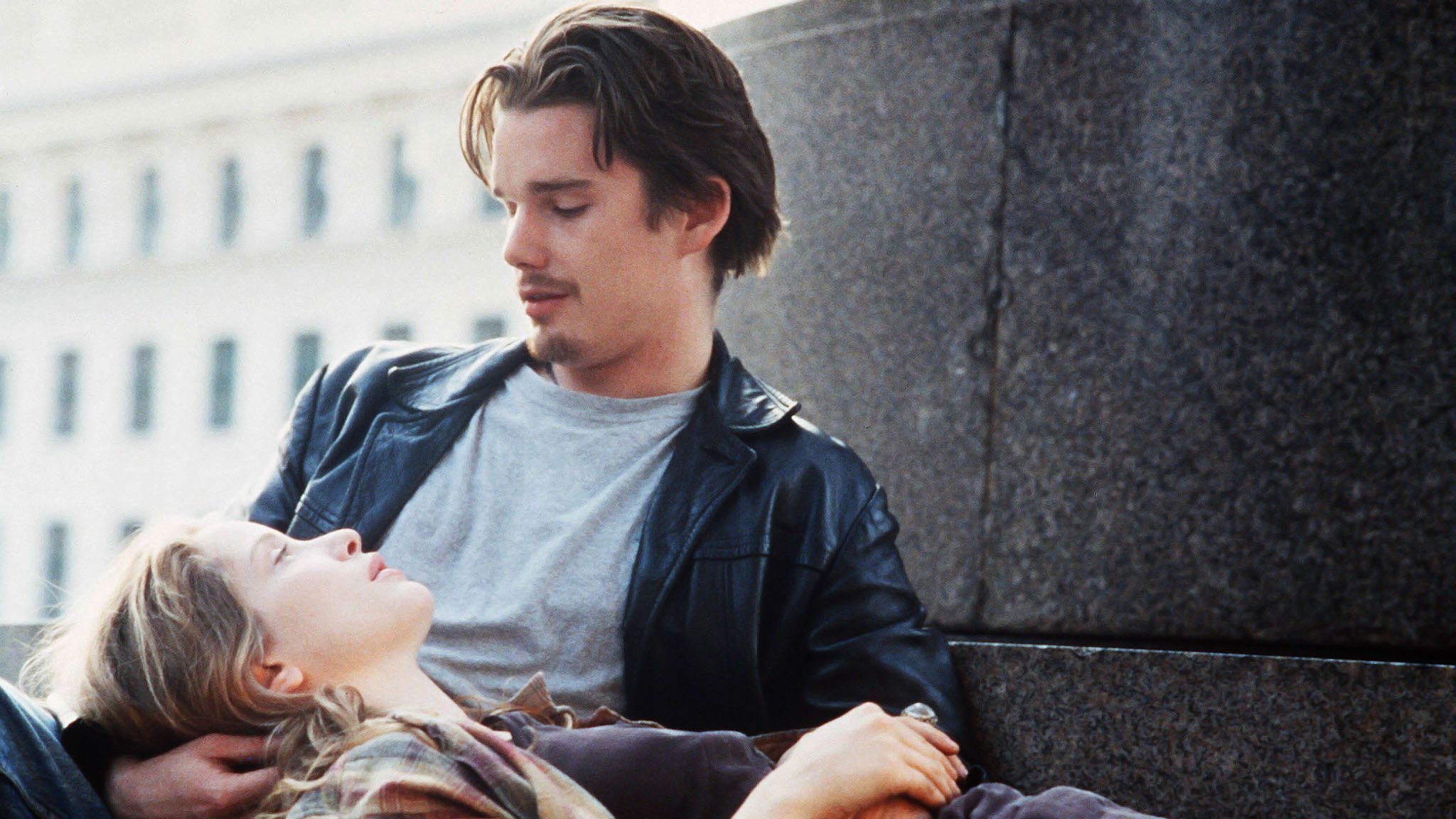
It’s technically not the first time I’ve watched this movie, but until now, it had been the only one from the trilogy I’d watched, so I revisited it as part of my viewing of the entire Before saga for the first time.
And it does hold up great. It is still my favorite of them all because I’m a sucker for any “spirit of youth” movies since I was in my first twenties.
That includes everything. The awkwardness that makes one cringe, in this film, is intentional. You know, Linklater does like his naturalism.
Fantastic watch and, if for some reason you can only watch one film of the three, make it this one.
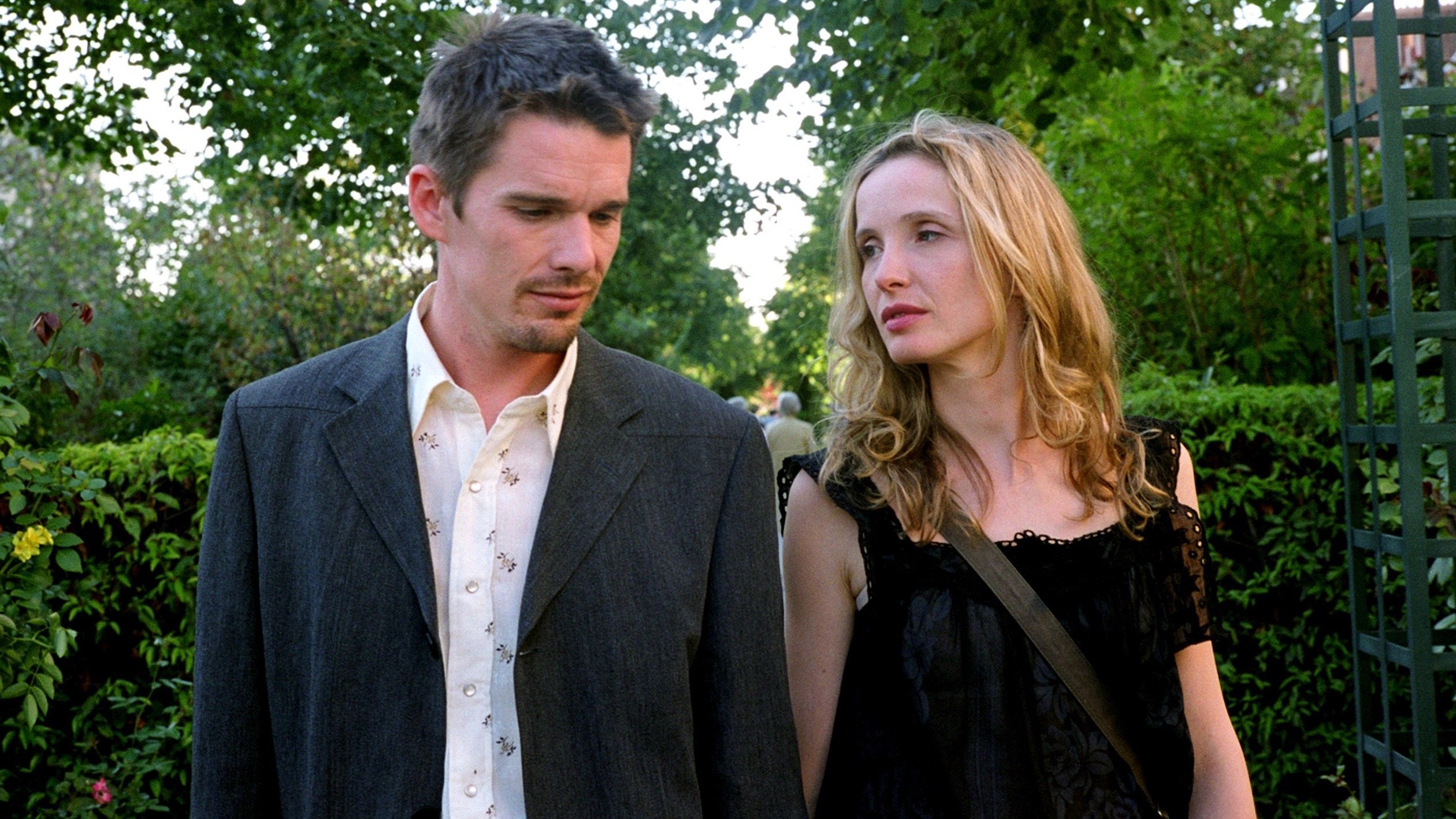
Second entry in the Before saga.
Nine years after the events of the first movie, Jesse is now an accomplished writer, traveling on a book tour of his semi-autobiographical novel based on his day with Celine covered in the previous movie. Celine finds out about it, and she attends one of his book signings, reuniting for the first time.
We then follow the characters, almost a decade more mature, reminiscing about their previous day together, its meaning and what their lives since have been. Jesse has a plane to catch, therefore they have to part ways again, before sunset.
It’s a very nice continuation of the story, and the growth of the characters is palpable. While the film is mostly walk and talk scenes, you get a lot of great Linklater dialogue. Feels like having an stimulating conversation with a good friend.

The latest entry in the Before saga. At least, at the time of this writing.
If Before Sunrise is my favorite, Before Midnight is definitely the most interesting.
Another nine years since the last film, Celine and Jesse are now married with two kids. They are spending some time at a writer’s retreat in Greece.
The staple Before elements are all there, but while I’d say that the previous two movies are firmly in the “feel good” category, focusing on idealized romance, this one, and quite astutely, I must add, is the first one introducing some real, ugly conflict, based on the realities of day to day life for a couple. It’s incredibly artistically sensible of Linklater to do this, even if it pisses off some “fans” looking for more of the same.
That said, yeah, in purely inner, visceral enjoyment terms, this one is harder to watch than the other two. Still, amazing dialogue and conversations throughout.
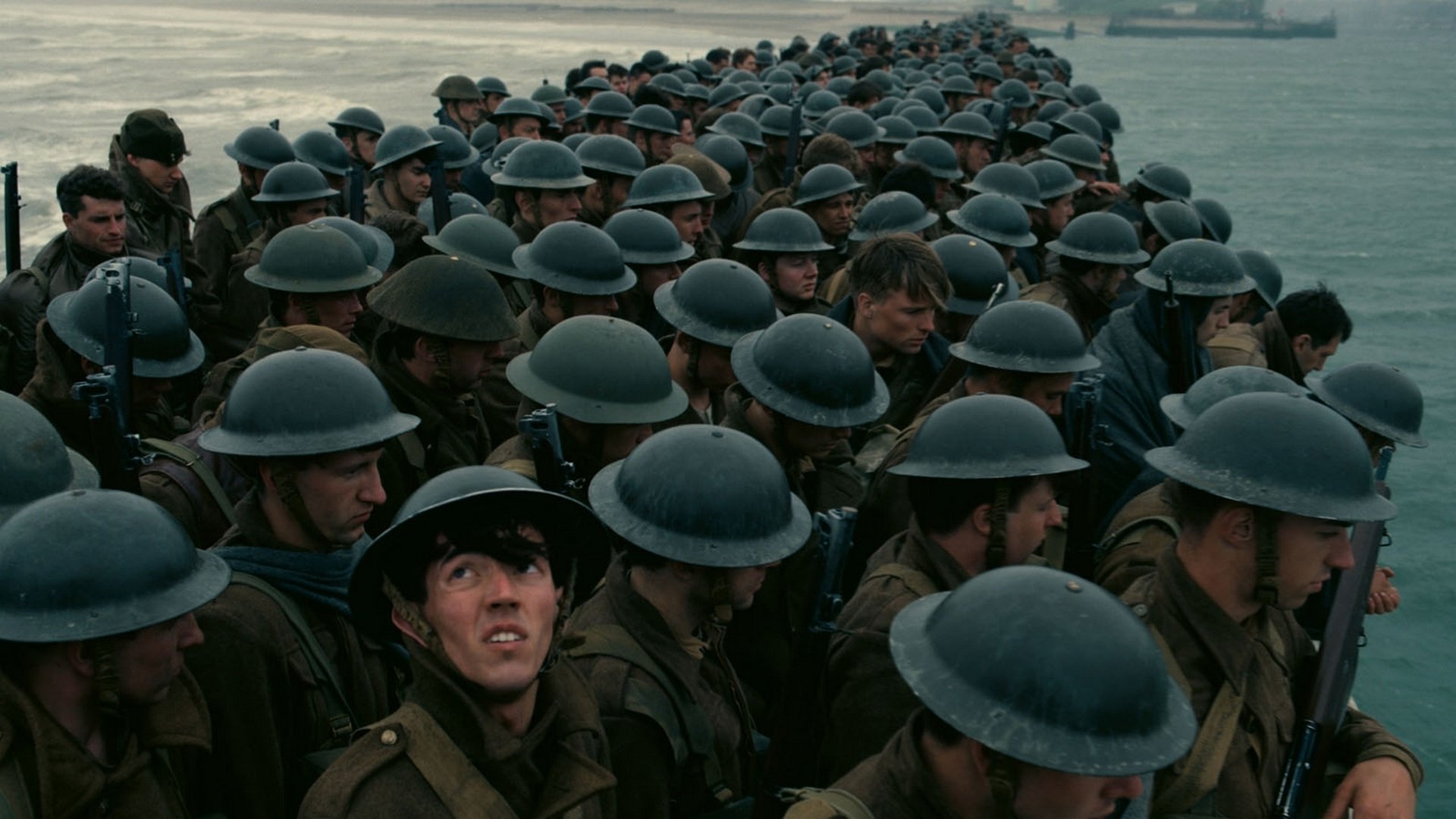
World War II films are, generally speaking, not my thing —I have nothing against them. They’re just not a genre/setting that draws me in— however, I saw an interview where Tarantino was praising this movie for its cinematic value, and got curious to watch it.
If anything, it is definitely an Artistic experience. Old Quentin wasn’t wrong on that. Nolan delivers a beautifully crafted work of Cinema, as per usual.
It’s been noted that the story Dunkirk isn’t very interesting per se, when told linearly, but Nolan here, as he likes to do, cuts and edits the timeline, remixing the depiction of events, to make the experience more exciting for the viewer.
Overall, a stunning work of cinema, that’s probably best experienced in IMAX. However, watching it as a standalone viewing, at home, is not disappointing at all, unless you’re predisposed to hate Nolan’s work, I guess.

First film I watch from indie darling Sean Baker and, I have to say, based on this, I kinda get his popularity.
Well crafted comedy, with the right amount of social message, intriguing plot, and touches of poignant meaning.
But despite the undeniable good craft of the movie, I’m kind of left thinking that this is just a normal movie.
Let me explain. Movies like Anora are simply what normal movies used to be in the late 20th to early 21st centuries, before the Marvel/Disney conglomerates reduced all movie options to either Whedonesque amusement rides full of special effects or artsy experimental A24 pseudo-indie stuff.
While I have to say that this film has a slight tinge of “Really Makes You Think”-itis and feels a bit Oscar-baity, it is good overall. Films like Anora were allowed to exist, and they weren’t anything special. Comedies, or dramas. Down to earth plots. No genre stuff, no experimental, wacky shenanigans. Just regular cinema.
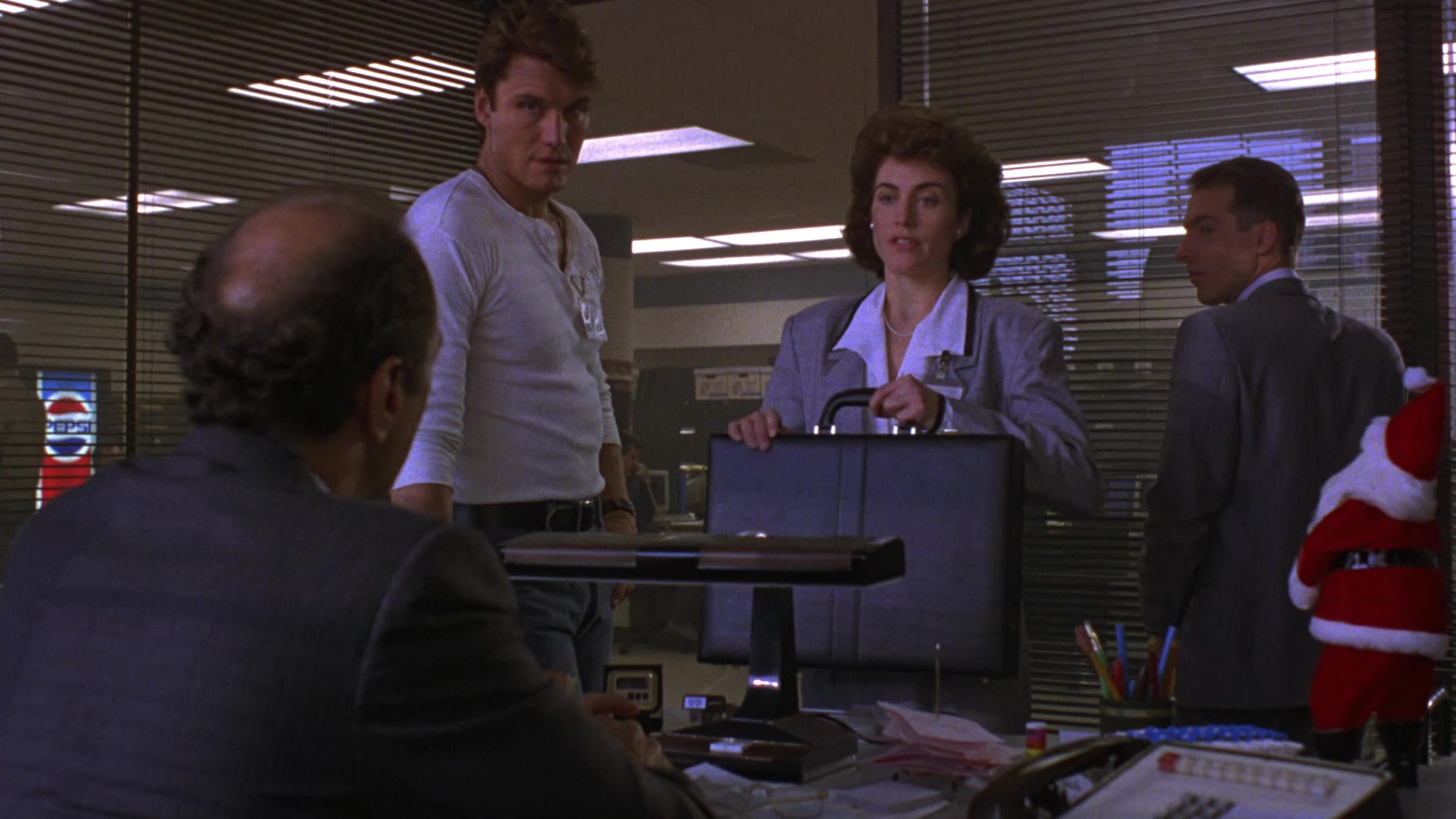
A lesser-known action flick from the early days of Dolph Lundgren’s career as an action star.
Lundgren plays Detective Jack Caine, and gets involved in a bizarre drug-dealing case with multiple homicides.
There is a formulaic buddy cop dynamic with him as the renegade, loose cannon cop who is forced to work with the nerdy FBI agent. The whole thing reminds me of The Hidden, except with a more “video rental” action movie vibe, and not nearly as good. Still, a perfectly fine , entertaining movie.
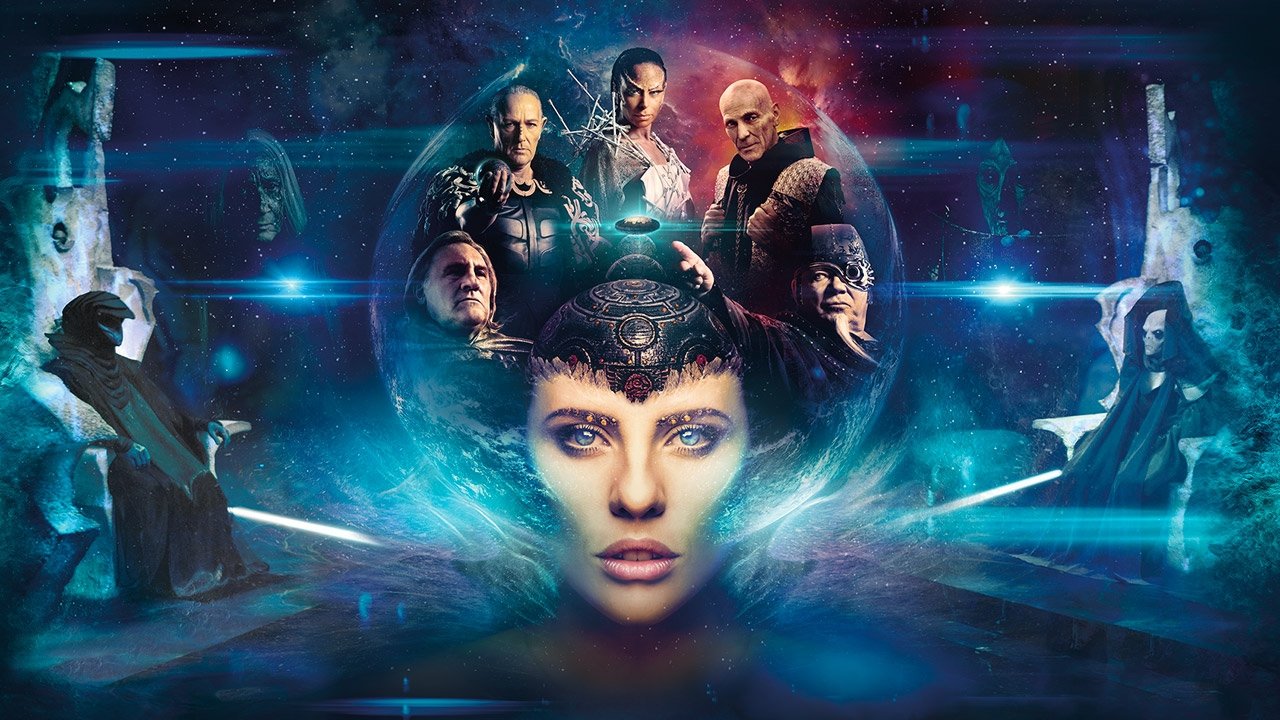
Wow, what an absolute mess. I admit I wasn’t able to pay a lot of attention while watching this one.
An Italian SF production —more like sci-fi, to be honest— overambitious, hilariously poorly executed material by a company called “Artuniverse”.
The story revolves around the titular Creators, powerful godlike figures meddling with the forces of the universe. They need to search for some doodad that will either save Earth or destroy it. Can’t really remember. The writing is already something to behold. Take a look at the cast, too: Gerard Depardieu, William Shatner, and famous scenery-muncher Bruce Payne of Dungeons & Dragons and, to a lesser extent, Highlander fame. Imagine these genre stars reciting the awkward lines in this script. Even considering that English isn’t the author’s first language, it comes across as unnatural and uncanny.
I was intrigued because the dialogue for some characters evokes concepts from the Lensman series, which I’m pretty sure was an influence for the author (the movie’s mcguffin is called the Lens, too ). However he completely failed to make something that does justice to the possibilities of what Lensman evokes, such as planet-level telepathy. The characters end up bland and generic.
It’s actually a pretty fascinating movie to watch, but it is most definitely not a good one.
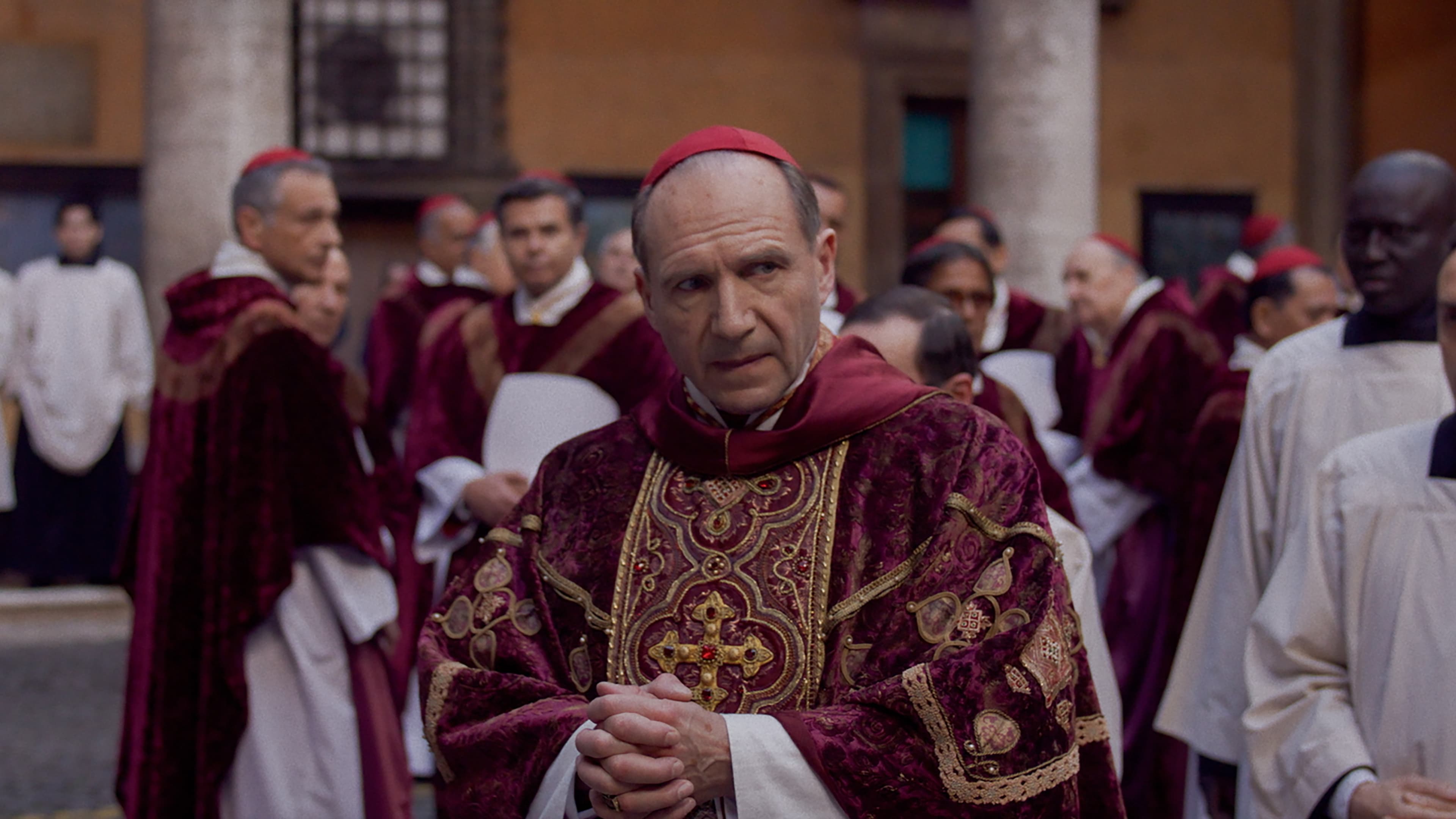
This was a pretty good watch. Adaptation of a best-seller novel, if I’m not mistaken.
After the Pope dies, the Catholic Church must undertake a conclave to elect a new one. Intrigue abounds at the secretive ritual, while Cardinal Lawrence (Ralph Fiennes) tries to navigate the event he’s tasked to conduct.
I found the whole thing to have a slightly Oscar-baity smell, particularly the ending, but it was still overall a fascinating story, well paced and produced, and not shying away from making incisive observations about the state of the Church as an institution. Consider the writing at this point forward a complete lack of notes.
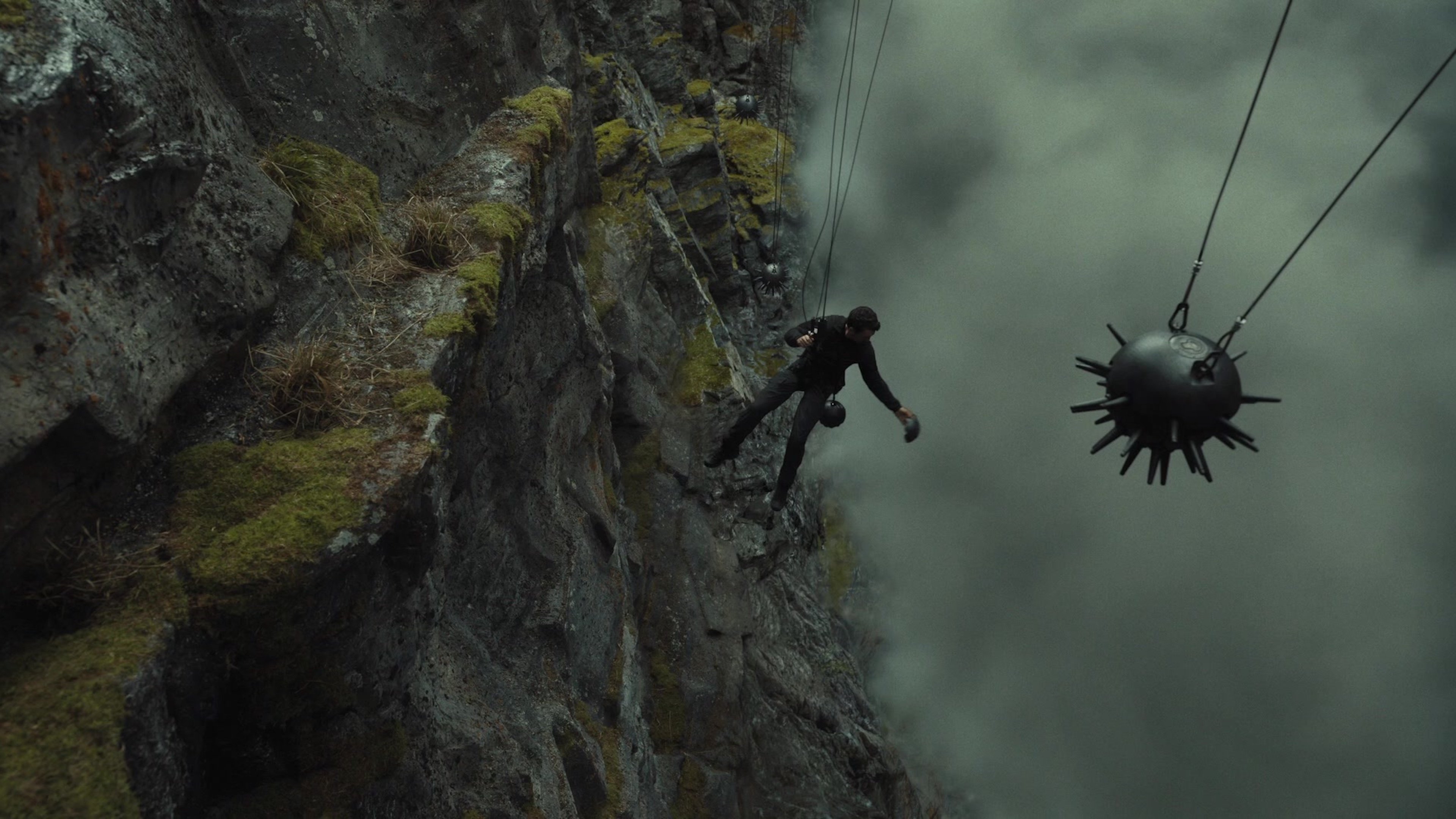
Clearly a “nourishment” film for ATJ and Miles Teller, who for some reason is being pushed as a leading man now.
Very, very edgy, in a bad way. Sci-Fi crap about a gorge in a classified location that two mercenary operatives are hired to guard, strictly forbidding contact with each other.
The premise is ridiculous from the get-go. You have a highly dangerous area to protect, but only have two people on duty and some automated turrets to do so. Miles Teller’s character is on one side and Anya Taylor-Joy on the other. They don’t let them communicate with each other and, of course, they break this rule immediately. For some reason, they start their respective shifts simultaneously.
They soon discover that they are guarding some abandoned military facility, yadda yadda. Very edgy, nonsense stuff that the author thought sounded cool.
It’s entertaining but way too stupid, and the action setpieces and special effects aren’t even that good.
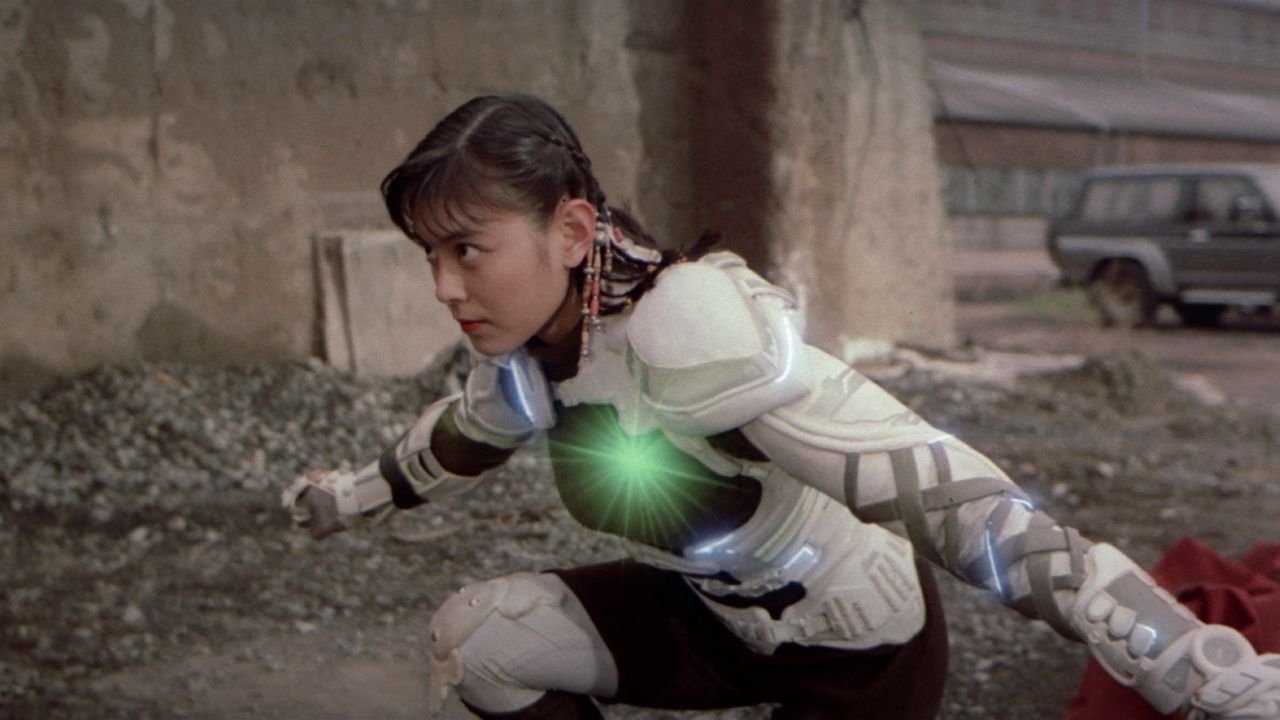
I was pleasantly surprised by this classic by the great Keita Amemiya. Mostly by how it could achieve such great results with such a small budget.
The plot is pretty ambitious: A bounty hunter lands in Japan to capture an escaped dangerous bioweapon called Zeiram.
Of course, we know Amemiya is a master of special effects and creatures, so that part is great, but on top of that, the whole setup is cleverly constructed so that the scenes in the Japanese town don’t require a lot of budget. The gimmick is that Iria, the bounty hunter, sets up a dimensional barrier in the vein of those in the manga X, that only lets her and Zeiram interact while protecting the local population, but she mistakenly traps two Japanese deliverymen in this separate dimension, causing trouble.
Overall a pretty great watch for fans of more gritty tokusatsu.
Researching the background of the movie I learned that it was not, as I assumed, an adaptation of a manga or anime. The live action movie came first, and the same year an OVA titled Iria: Zeiram the Animation was released covering a prequel story. There is also a live-action sequel from 1994 that I haven’t watched yet, but am now looking forward to.
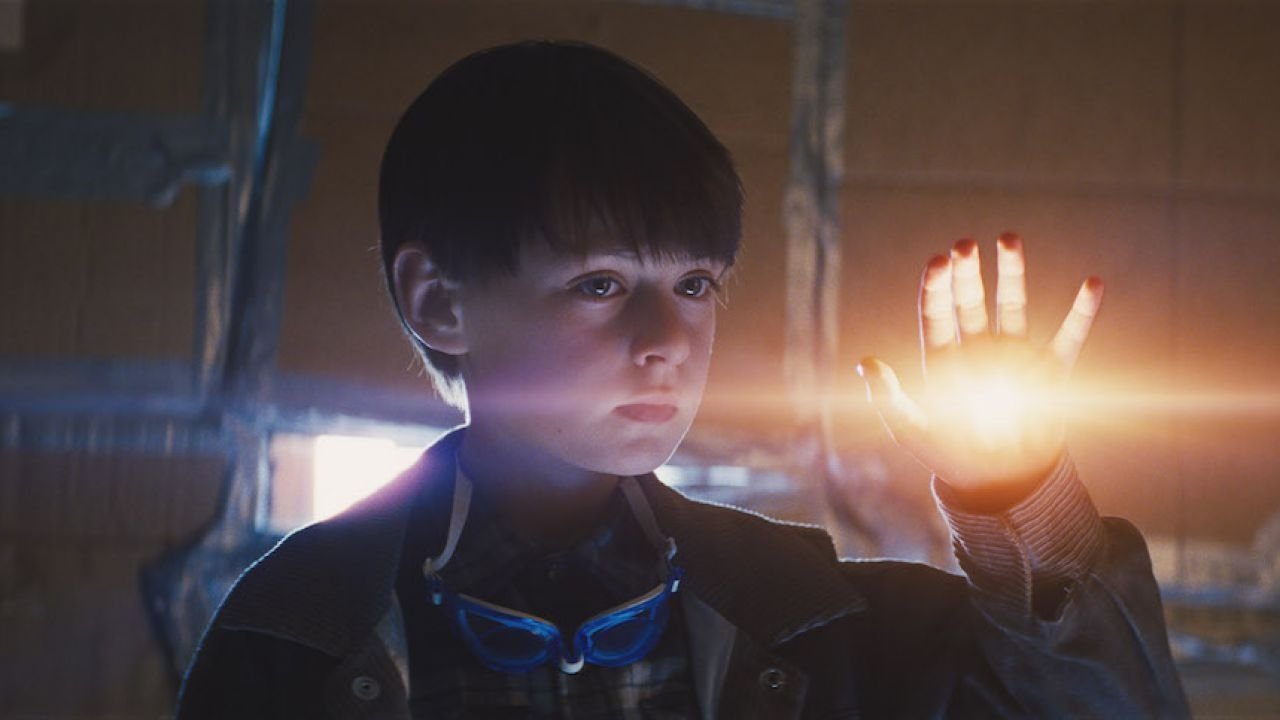
An odd, low budget SF movie where a father (Michael Shannon) escapes with his son, who has special powers.
The start of the movie is pretty promising. Suspenseful and mysterious, and it quickly introduces the different factions going after the kid —The US Government, a strange cult who preaches that the kid’s powers will usher in a new age, and the escapees themselves— as well as the key characters that are part of each one.
It seems to be pointing to something exciting, but never really manages to deliver that initial optimistic promise, and while it has one or two cool setpieces here and there, the ending unfortunately devolves into something pretty dull and insipid.
I’m not sure if this if due to a deficiency in the writing or due to producer’s meddling, but it feels so close to having something cool there, and then it botches the execution with cookie cutter plot points and platitudes. It’s a shame because it really has some cool ideas.
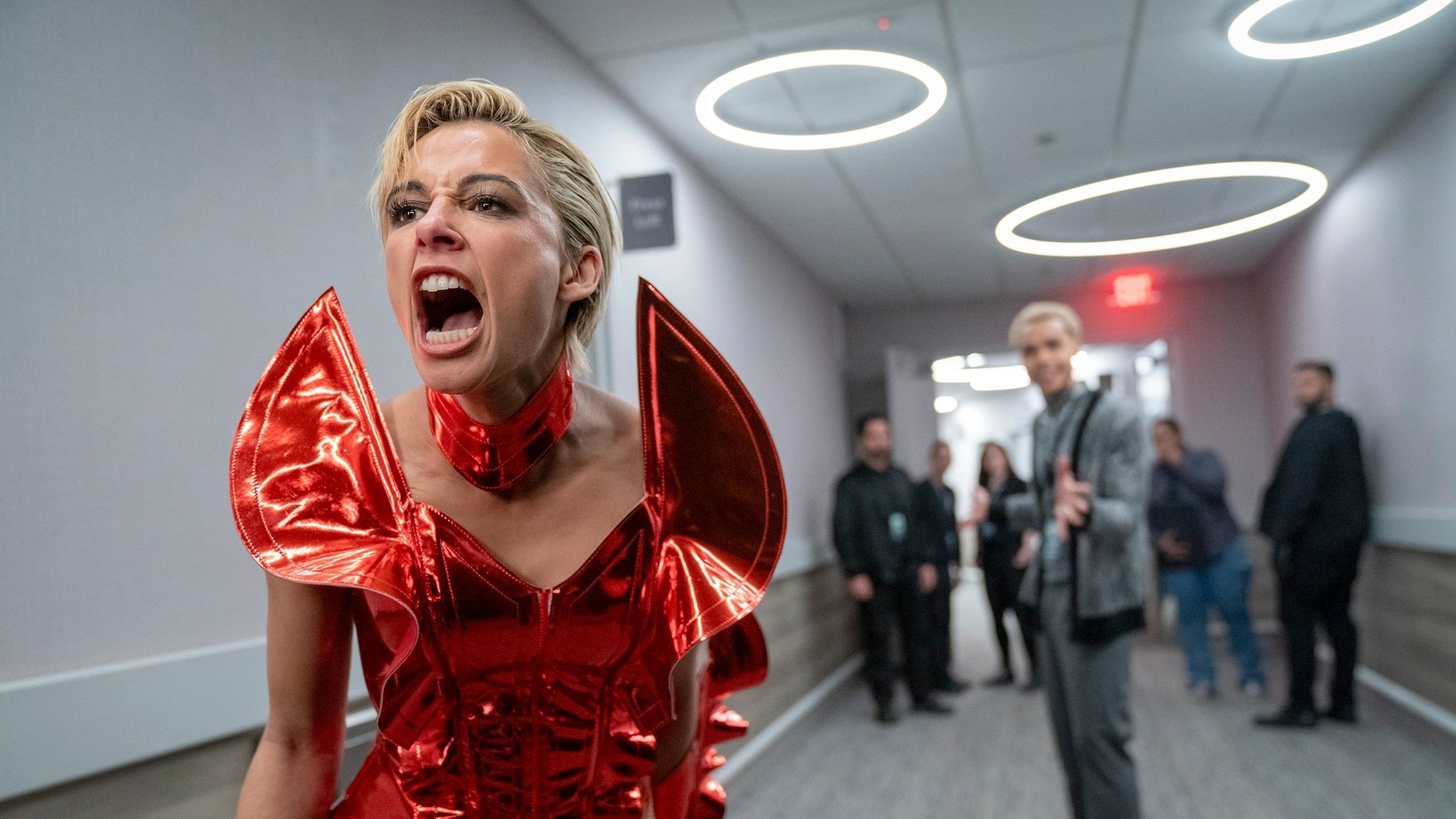
I don’t normally go for these popcorn horror movies, but the trailer for this one intrigued me basically because of its visuals.
The film manages to have a visual flair that’s unexpected and unnecessary in a production like this, but it can single-handedly make it worth a watch, even when the rest of the movie isn’t interesting.
Some often say that horror is a genre for women. The nature of the genre makes it so that it’s amenable for women to enjoy, since it covers pretty much all the taxables: female characters are prominent in the plot, when not the protagonists outright, there’s increased representation of female characters, depictions of them having relatively increased agency, sometimes in the case of slasher films even “kicking ass” against monsters. There’s the adrenaline spikes of jump scares, and so on.
Smile 2 is firmly in this camp as well, as the themes are pretty much a bingo card of what middle class, American women are scared of in our culture.
The body horror parts are perhaps the most laughable ones. Maybe if you are 15 and this is the first horror movie you see they may have an impact, but they are so goofy and unconvincing that they work pretty much only as a cheap shock.
The handling of the villain or evil entity is also not satisfying. If anything can be an illusion, the stakes can never be real. By the end of the movie, it’s impossible to tell if everything has been a hallucination, or if the protagonist has even been in any real danger. Then again, perhaps that’s simply a clever reinforcement of the female-centric themes.
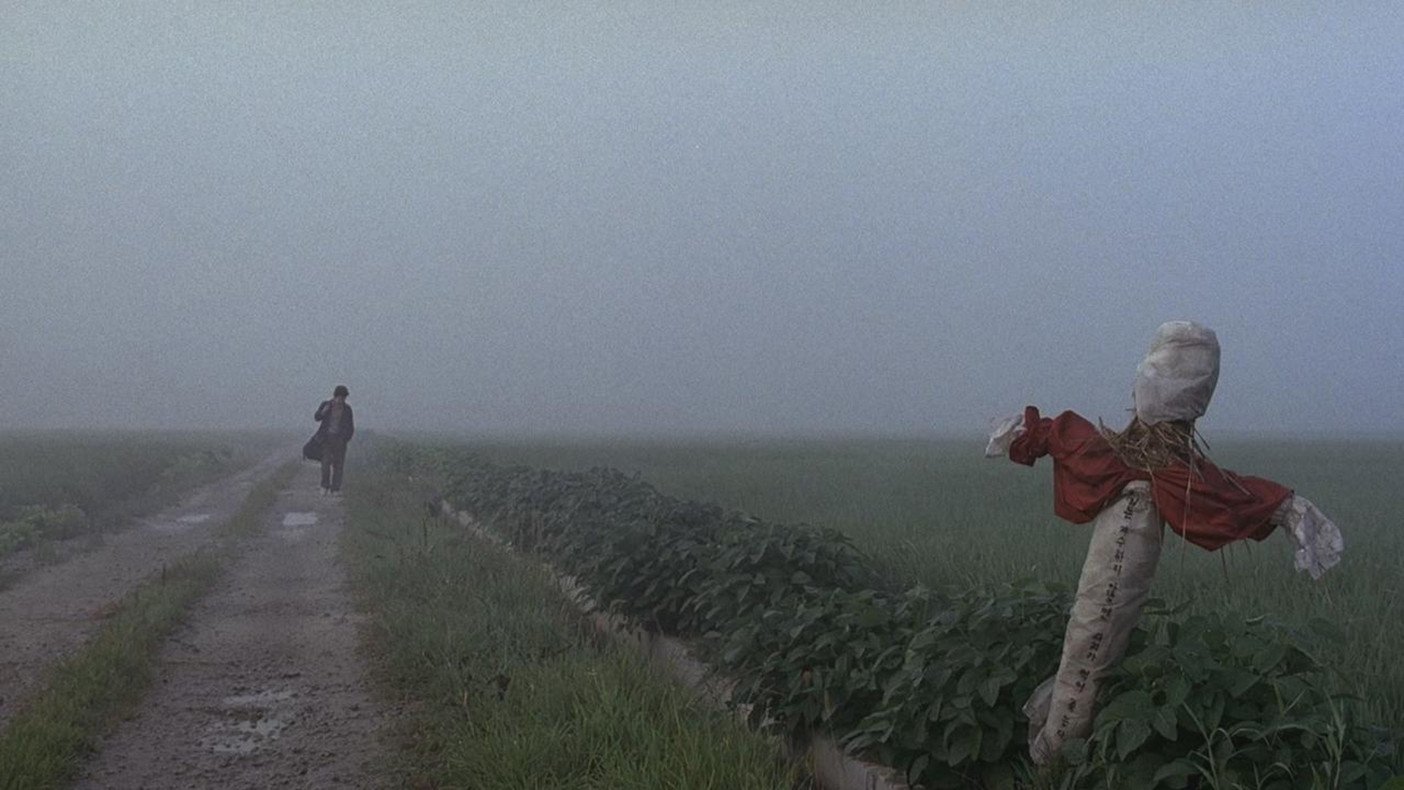
I know I’m way too late watching this one. Lots of people have recommended it to me over the years as a masterpiece. They were not wrong.
Memories of Murder is essentially a literary classic made cinema. A masterful blend of crime thriller, social critique and dark comedy, all set within the cultural milieu of 1980s South Korea, only a few years before the nation’s transition into its democratic Sixth Republic.
The main plot line of the movie follows a police investigation of a series of killings in a rural Korean province. It’s getting so bad that Seoul sends trained detective Seo Tae-Yoon to aid in the investigations, where he witnesses the poor preparation of the police force there.
The penchad for fabricating evidence and corruption of the police, who are more interested in showing some work done to their superiors than on finding the serial killer on the loose is problematic. However Tae-Yoon looks into these practices detachedly, not actively fighting against the system in place.
This narrative is realized with scenes of day to day life in the town, with darkly comedic scenes highlighting the incompetence of Park Doo-Man, the rural policeman who relies on hunches and brute-force torture over careful investigation. All the while the killer keeps taking more and more victims.
It’s incredibly well done in every aspect. Joon-Ho’s cinematography is top-notch, and the different themes and approaches to storytelling are used judiciously and deliberately. When (good) critics reproach a movie for mixing tones or styles, they are most definitely not referring to works like this one, but rather clashing to styles and incompetently used tropes.

I honestly forgot how this movie made it into my list. I’m not sure if I followed some random IMDB thing or what.
It’s basically just a throwaway romantic telefilm to watch in the evenings. I think there’s a bland category of movies they refer to as Hallmark movies, which are produced by the greeting card company for their cable TV channel. Although this movie does not, as far as I know, have any connection to Hallmark, the blandness of its message and sheer dullness of the plot reminds me of the idea I have of these Hallmark movies.
I’m finding it difficult to put myself into a 2012 mindset to evaluate this movie on its own cultural terms, and there’s a possibility it hit with more impact back then, but today its themes feel too evident and the plot too linear and predictable, and I can’t recommend it in 2025.
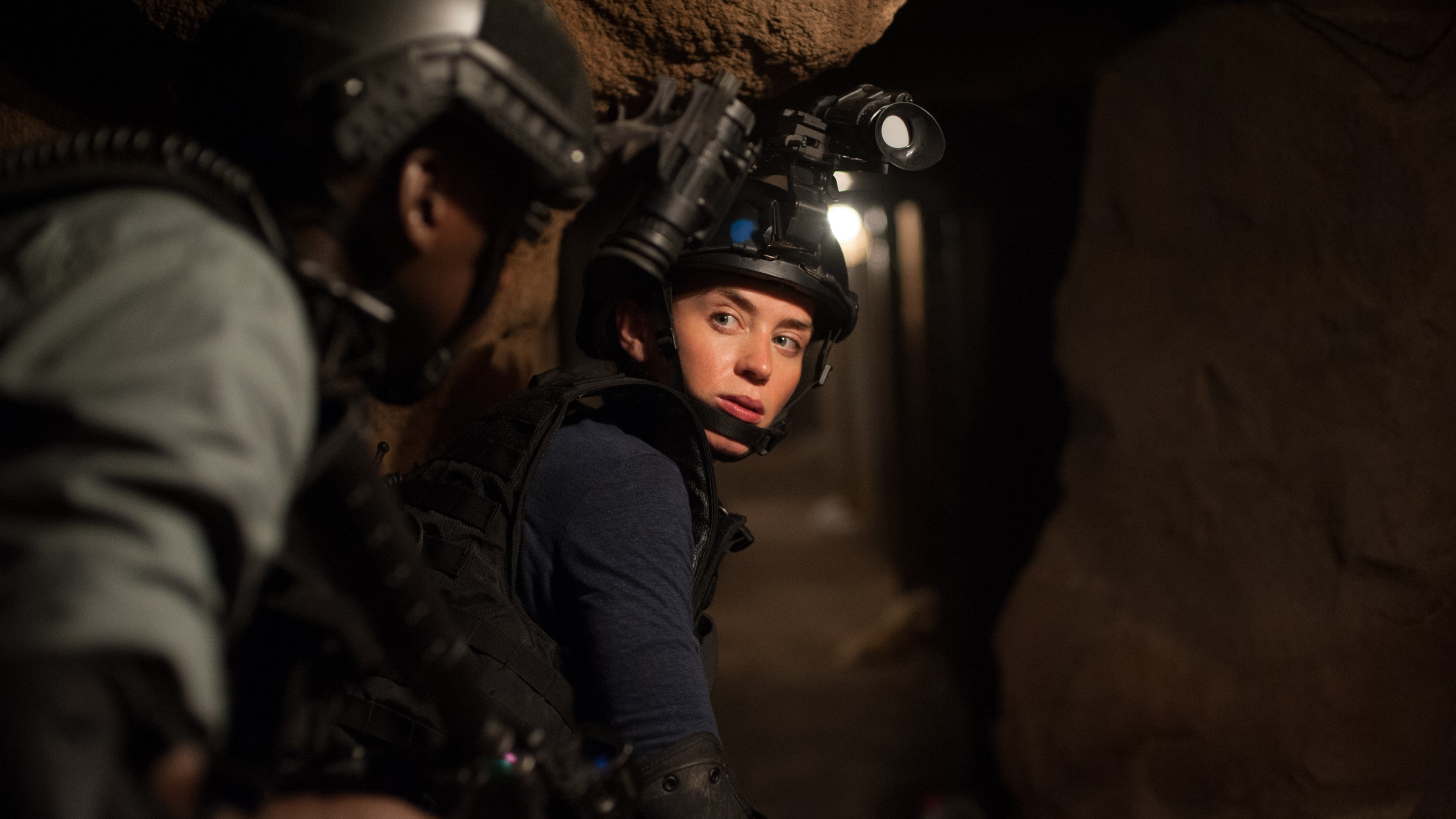
Before Blade Runner 2049 and the new Dune movies, Sicario was Dennis Villeneuve’s must-see movie.
Having arrived a bit late for it, I was left pretty underwhelmed.
Don’t take me wrong, it’s an expertly crafted film. Visually stunning and well paced and directed. The night vision ops scene in particular is a highlight.
However, after having watched the sheer spectacle and fantasy that both Blade Runner and Dune part 1 and 2 have to offer, this more grounded tale inevitably feels smaller in scope. Don’t let me discourage you, though. It’s still a solid movie and worth a watch.
There is a 2018 sequel that I haven’t watched, where both Benicio del Toro and Josh Brolin return in their roles, but not Emily Blunt and, perhaps more importantly, doesn’t have Villeneuve in the director’s chair, so I can’t comment on how they compare.
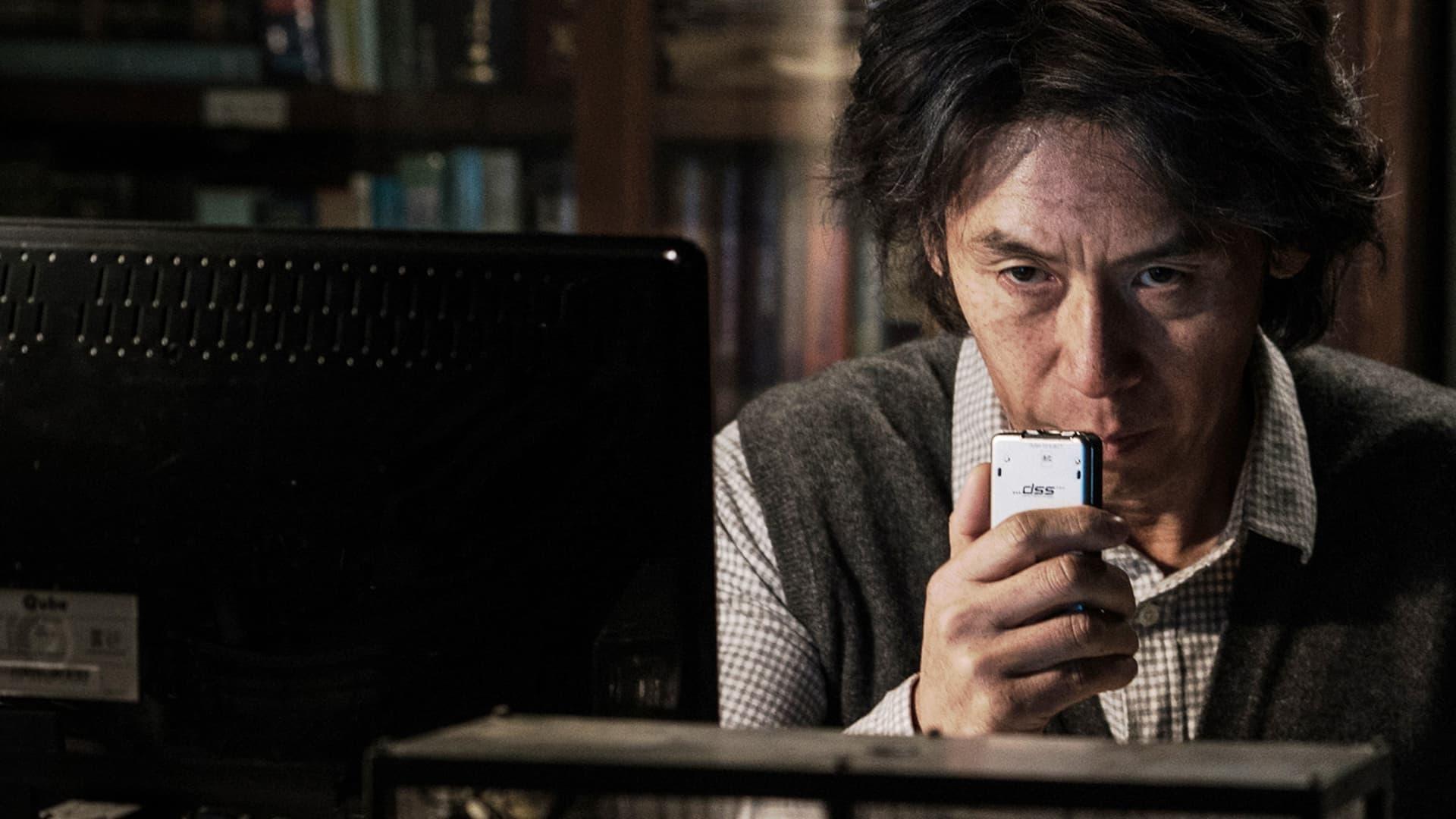
I didn’t know this movie existed, but now I do, and I watched it, and… I’m rather upset at it.
The entire thing seems to have been crafted to capitalize on South Korea’s Memories of Murder, an extremely well-regarded film that also happens to be incredibly well made.
This is not even “We have Memories of Murder at home”.
Never mind that the title, at least the localized version, deliberately tries to evoke it, but some shots in the movie itself seem to only exist to remind you of Bong Joon-Ho’s much better movie. Doubly so because they are disconnected to the rest of the film.
In this one, we follow the steps of a serial killer, but it’s depicted sympathetically because he only kills people who he deems bad persons. Don’t expect much moral ambiguity beyond that because, coincidentally, the kind of persons the murderer happens to consider bad align pretty much with what most people would consider bad.
He suffers a car crash and gains an eye twitch tic, and Alzheimer’s. He then meets another serial killer —one with different views on who should die, and therefore the bad guy—, who decides to target the protagonist’s daughter, complicating things. All of this leads to a movie that tries too hard to be too clever, as the audience can’t trust the unreliable memories of the protagonist.
It all ends up feeling like a version of Memento if you removed all the insight and thoughtful themes, crossed with a bargain copy of Memories of Murder.
There are better things to watch, but this one is at least interesting in how blatant and diminished it is in comparison to the films it’s ripping off.
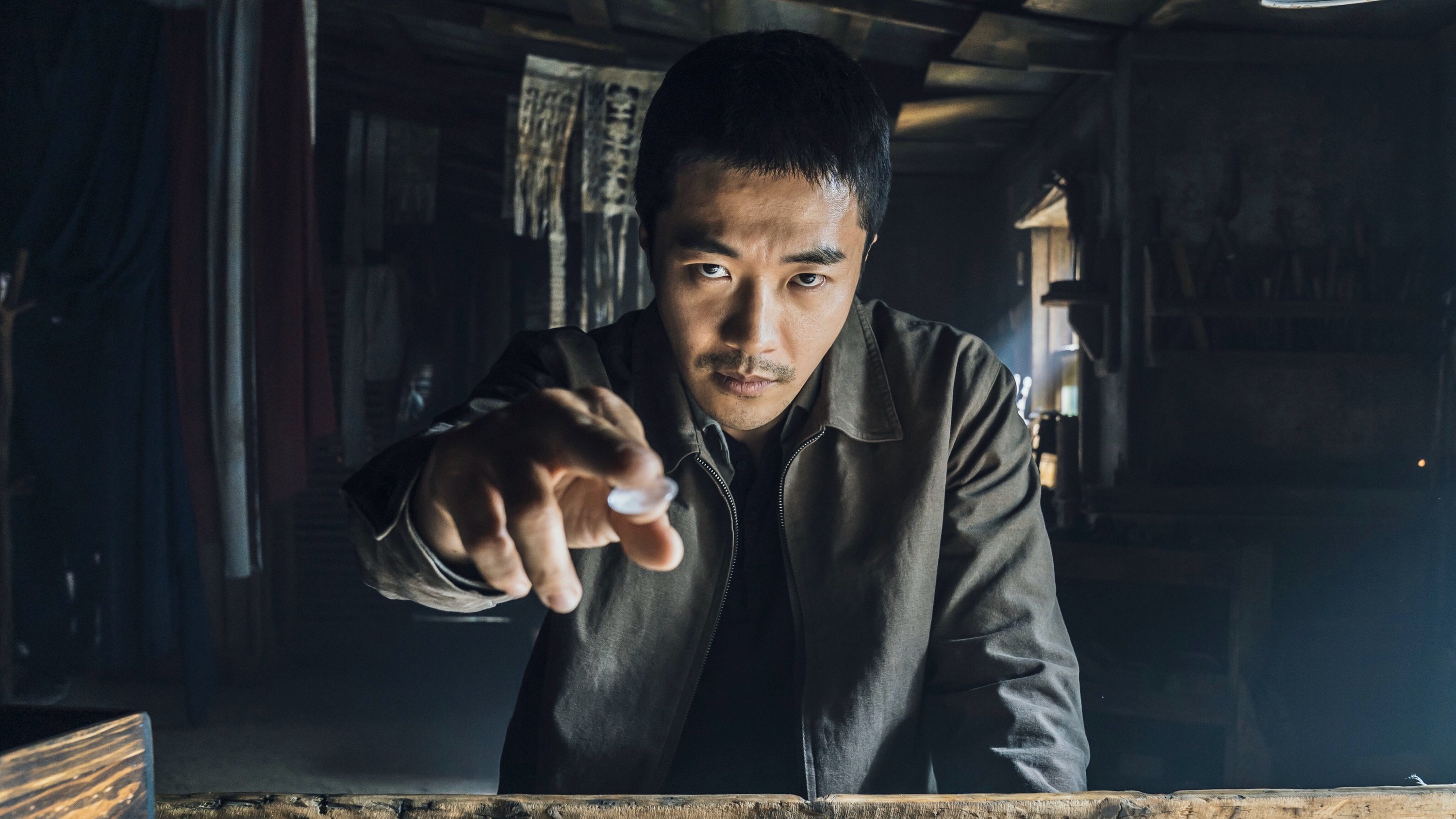
It’s kind of weird covering this sequel after having watched the previous entry. See, the previous movie from 2014 had an open ending, suggesting follow-up adventures and a continuation of the story in a possible sequel. The sequel we got instead had no connection to the previous movie, a completely different protagonist and supporting cast, no continuity, and a completely different direction.
Billed as a “prequel”, despite the lack of connection to the original movie, the story follows another kid who grows up to be both a Go master and a martial arts prodigy. Unlike the first movie, where there was a plot-related reason for the protagonist to become that (he was already a high-level Go player, and after ending up in prison he learned martial arts), in this one, it just happens. We have a child Go prodigy that trains absurdly hard to get better at Go, to get revenge for her sister against a revered Go master, but also becomes really good at punching people, because yeah, that’s the combo of skills a Divine Move protagonist must have.
Despite leaving all pretenses of storytelling aside, the movie is quite entertaining because of the ridiculous, over the top encounters Gwi-soo has on his path to get to the main villain, Heo il-do.
There is a game of Go played with a weird shaman where players bet their own arm, an assassin who was also wronged as a kid who kills his victims by chalenging them to a game of Go played on a hot iron board filled with burning acid, which triggers based on who loses more stones, and nonsense like that.
It’s over the top, and absurd, and definitely a worse movie than the first one, but it is also a really fun watch.

Fell into the trap of Netflix promos and watched what was ultimately a pretty bland German thriller.
Set almost entirely within a US embassy, a mother starts a frantic search for her son, who gets lost in the waiting room of the embassy. Such mom happens to be a highly trained special operative with major PTSD episodes, triggered after being the sole survivor of a military operation.
It’s a weird mix of “momcore”, action stuff with some weirdly convoluted subterfuge, but the setup is pretty boring and formulaic. Not worth watching, in my opinion.
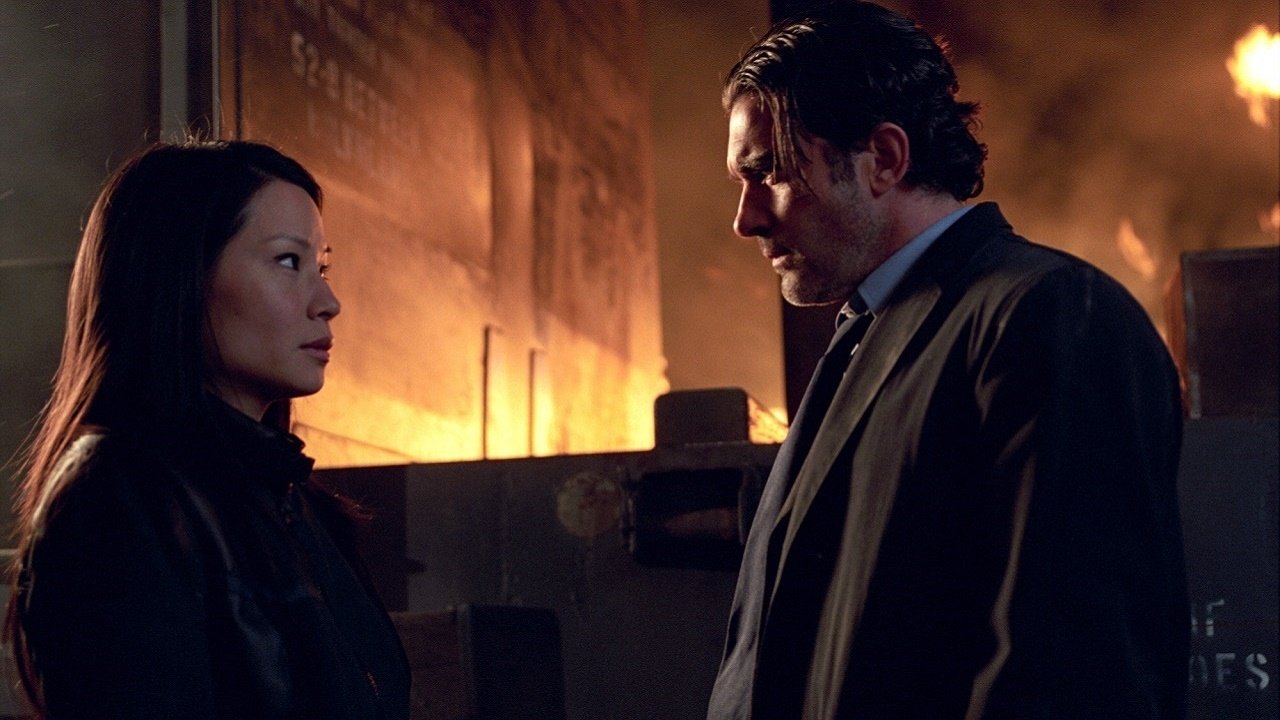
So, I finally tackled this infamously bad movie. Not sure if its reputation was widely known, or it was just within my local milieu, but it remains in my mind as a notorious trash flick.
The first thing that hit me is that the movie looks like a million dollars. Not a bad accomplishment for its $70 million budget!
Jokes aside, we take it for granted these days, but movies shot on film with a competent crew will look pretty good by default.
Another thing is that, 23 years later and many more garbage flicks watched, this one wasn’t even remotely the worst one. It’s hilariously edgy, and the actions the characters undertake make no sense, but it’s a watchable and entertaining movie with decent action scenes, lots of pyrotechnics and production values. Good enough for a late 90s action blockbuster.
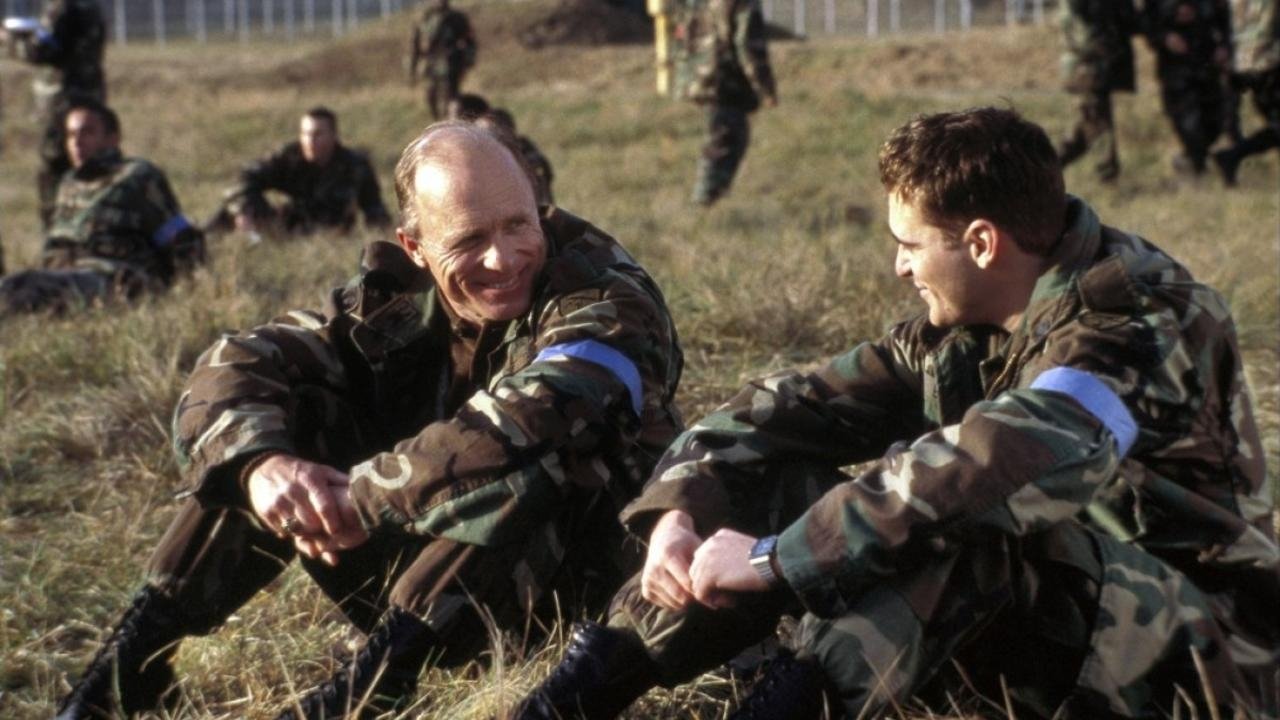
One of those stories of manners/picaresques set in the world of the US Army, with a roguish protagonist, Ray Elwood as played by Joaquin Phoenix, taking advantage of his position as a requisitions officer to smuggle goods into the local area.
Right away, the film sets clearly its tone of dark humor by showing us the most banal death of an American soldier. Despite the subject, it’s not always in good taste, but as an early 00s movie, it never gets too bad by modern standards either.
As you might expect, events complicate the life of Elwood, especially when a love interest enters the scene, played by Anna Paquin.
Once the movie is over, it feels like you’ve just watched a very late 90s dark comedy. It’s nothing remarkable, perhaps worth a watch if the topic interests you.
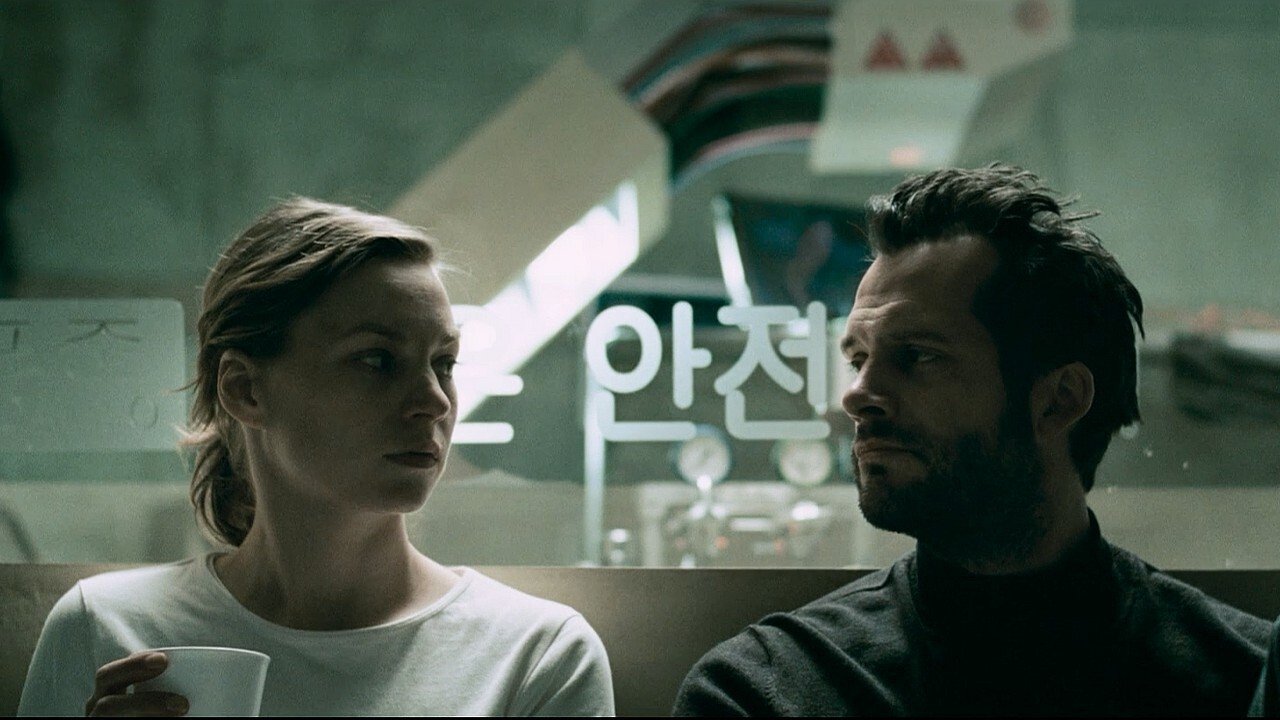
I recall reading reviews praising this German SF movie from the old io9 blog. I see now it’s under the Gizmodo umbrella. Haven’t read it in years, and I suspect all the original writers have left. Anyway, the source of this movie’s place in my to-watch list is not the issue. Let’s talk about the film.
Ultimately, it’s a pretty average SF tale where Dr. Laura, the protagonist, accepts a job in an interstellar cargo freighter run, with a total round trip of 8 years. She does this to earn enough money to finally move to live in a paradise colony with her sister.
The beginning is, sadly an Alien clone setup. I think it was a legally binding thing that if you made a movie about a crew working in a spaceship you had to use the Alien template.
The rest of the movie, while generally entertaining, is not so for the right reasons. There’s plenty of subterfuge, twists that can be seen a mile away, and massive plot holes that can’t.
Other than the fact that this movie did a lot with little, budget-wise, I can’t recall how it could have possibly got such good reviews.
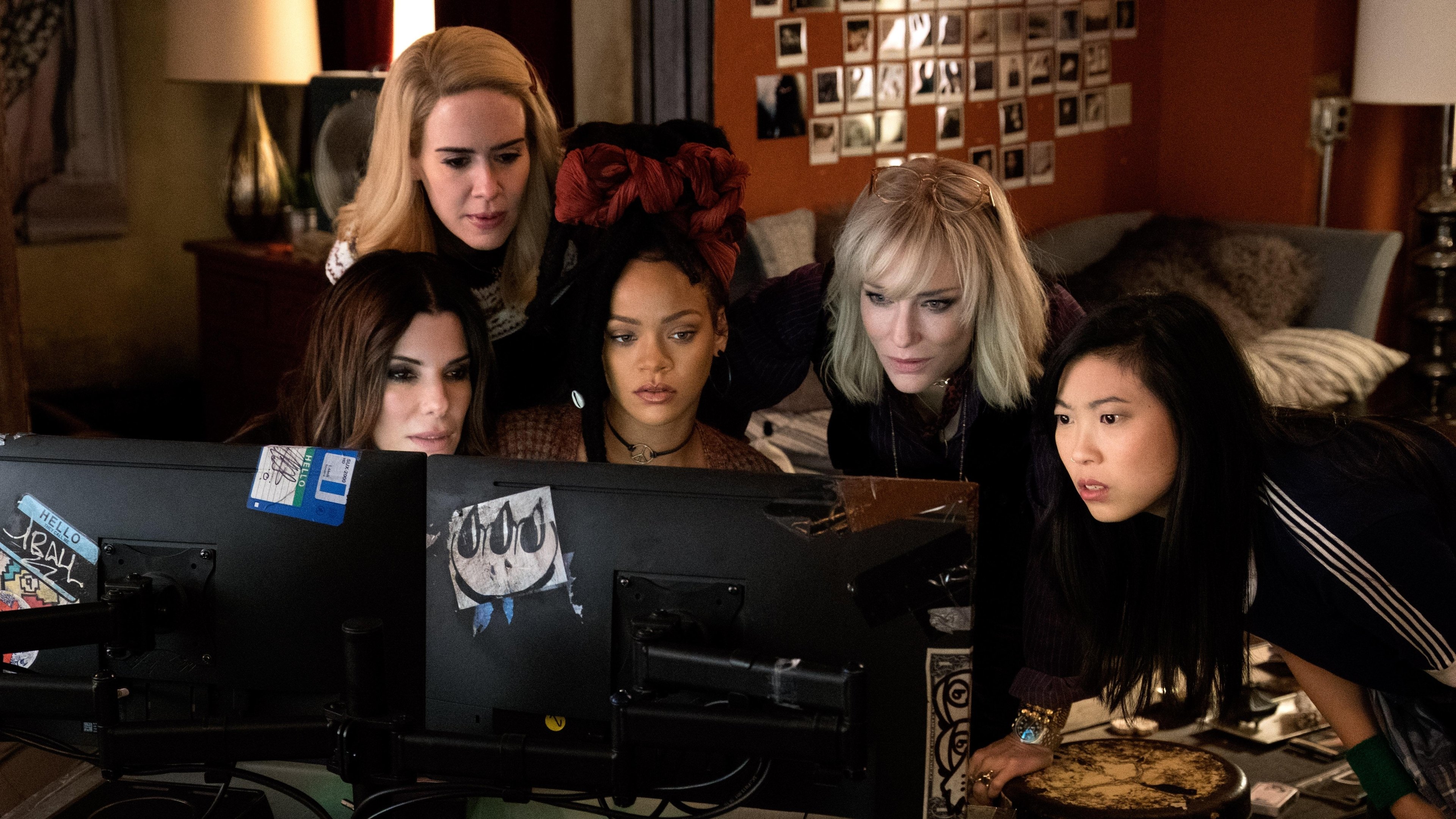
This is basically “Ocean’s Eleven for girls”. In every sense of the word.
It features an all-female cast that make up the team of criminals doing the heist, with Sandra Bullock as the long-incarcerated sister of Danny Ocean from the original movie.
It was written with such a pop-song precision of its target audience that they managed to swap every plot element into a pink-hued “for girls” version.
Instead of stealing cash, the girls are robbing a collection of jewels. Instead of robbing a casino, they are robbing the posh Met Gala in NYC. Even the meta plot twist of the true motive for the heist is revealed to be revenge against a bad Ex-boyfriend.
It has it all! To the latest detail. Including how the investigator looking for the stolen jewels basically catch the true culprits easily, but let them get away with no accountability. It would be brilliant if it wasn’t so bad.
The writing is awful, the heist plan makes no sense, and it basically only succeeds due to pure luck and the incompetence of everyone surrounding the team. Not very empowering!
Good for a laugh (at its expense), and nothing more.
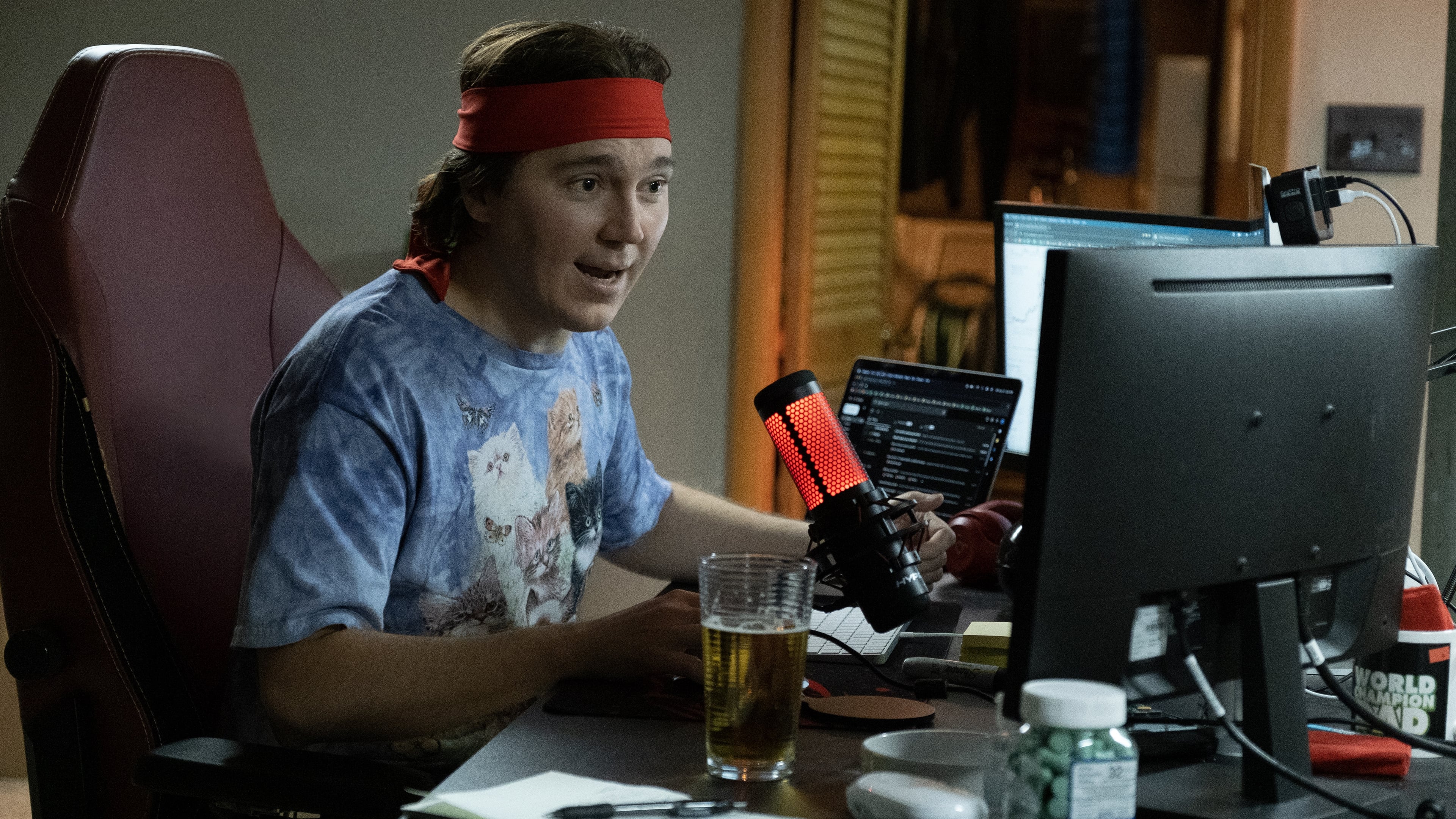
Event pic about the 2021 Gamestop stock squeeze against hedge fund firms, revolving mostly around the YouTuber Keith Gill (played here somewhat unflatteringly by Paul Dano), who drove a historic financial maneuver coordinated through Reddit and YouTube livestreams, that left financial titans looking for “dumb money” flabbergasted.
It’s an interesting view into the events of the squeeze, told in an entertaining manner. Nice as a historical piece, and not too propagandistic, but cinematically it is pretty average.
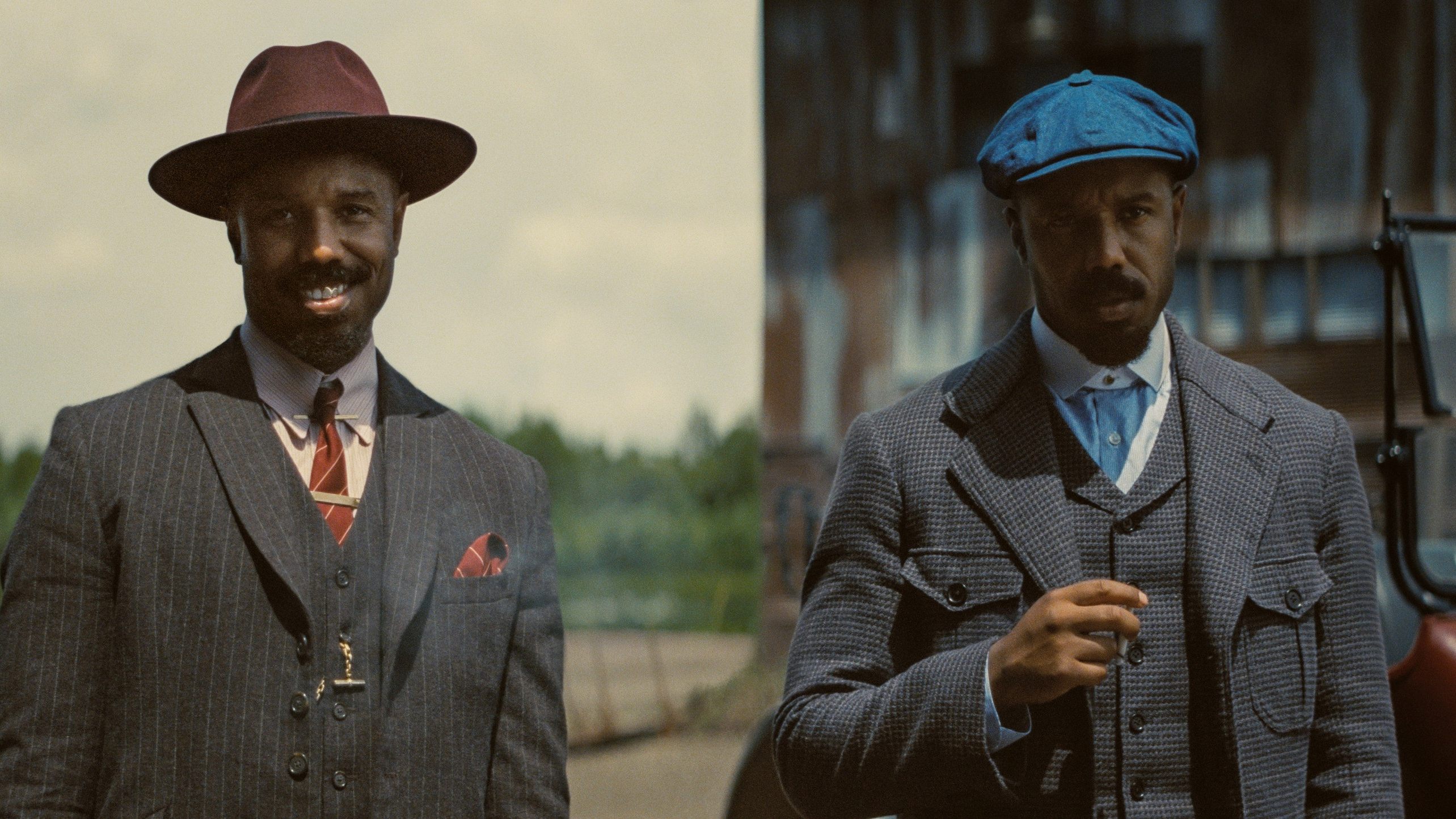
Much has been said about the fairly successful vampire movie Sinners. I heard rumors that it was initially meant to be a spin-off Blade movie, but plans fell through.
Glad they did, though, because Sinners is really good as it is.
Not only is it a tense vampire horror thriller, with appropriate action moments, but it’s surprisingly full of slower paced moments giving all the characters time to develop, and the audience time to reflect. That’s not a use of screen time that you typically see in blockbuster action films.
You may also have heard that the movie is “secretly a musical”. I wouldn’t go so far as saying that. It would be more correct to say that it contains several long musical scenes, but you could omit or halve most of them, and the film’s essence wouldn’t be significantly affected.
It’s sort of a miracle that a film like this was allowed to get made nowadays, and it’s reassuring that it apparently was pretty successful.
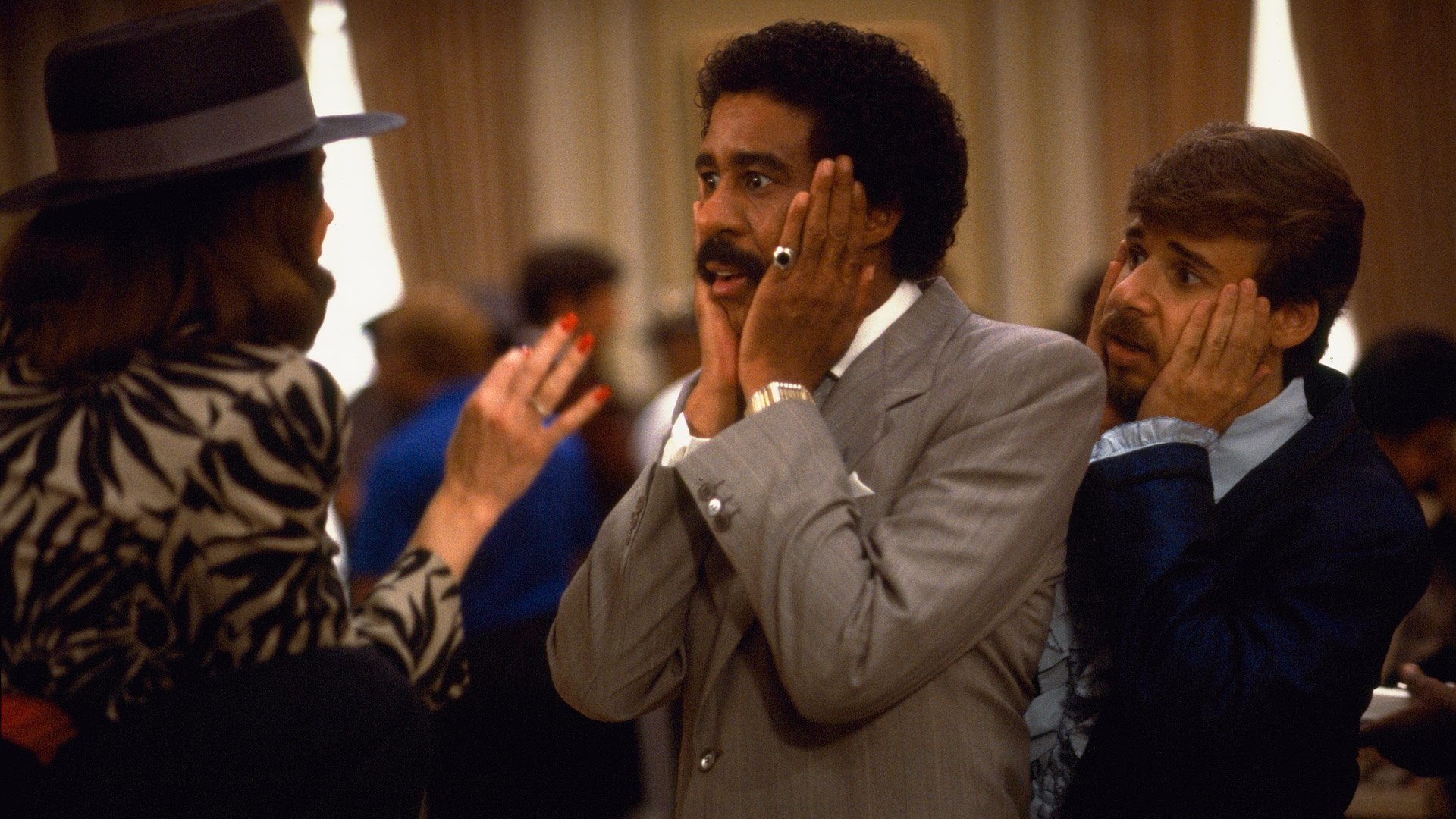
This is the sixth generation remake of Brewster’s Millions (1914) where a penniless guy inherits a fortune, with the stipulation that he has to spend a considerable fraction of that fortune within a time limit with no profit to himself, to be able to keep the rest.
This version is the one I watched back in the day, a long time ago, so this is indeed not the first time I’ve seen this movie. But enough time has passed that I didn’t really remember what happened.
Not much to say about it. It’s a perfectly solid 80s comedy, probably an alimentary project for Walter Hill. The fact that Brewster is played by Richard Pryor in this one adds some amusing historical context, complete with a plot contrivance explaining why, despite everything, the rich guy Brewster inherits from is still white (probably even funnier nowadays than when it premiered).
Decent, straightforward comedy. And the fact that it went on to get remade four more times after this one probably indicates that it’s a story that endures (either that, or there are some legal rights happenings about the screenplay that I don’t know about).
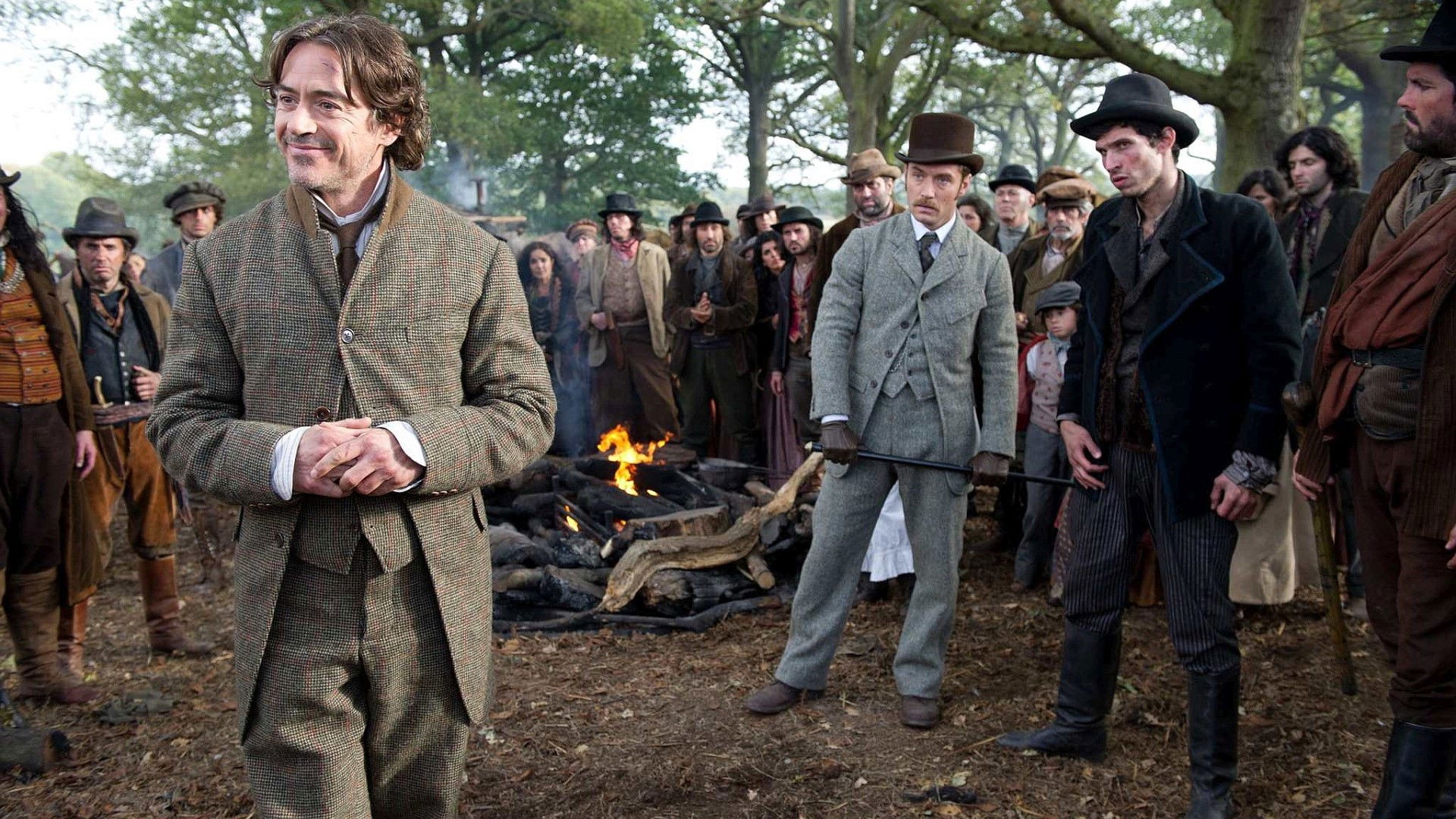
So this is, I think, the second movie in Guy Ritchie’s Sherlock Holmes planned trilogy. The 3rd movie hasn’t come out at the time of this writing, and it seems unlikely it ever will.
In any case, not a huge loss. This feels like a pretty phoned in sequel. The 2009 entry was fun, at least. This one seems like a sequel commissioned to build a franchise more than anything else.
They reuse the “predictive brawling” gimmick of the first movie three times in this one. They try to spice it up, but it’s honestly not enough to offset the fatigue. The dialogue isn’t good, the characters are not charismatic (neither new nor returning ones) and the plot is pretty bland save-the-world nonsense.
At least it has a pretty good Moriarty played by Jared Harris.

Johatsu is a documentary about people in Japan who vanish from their lives. They are called johatsu, or “the evaporated”. People who leave their former lives to start anew for a multitude of reasons including exploitative partners, debts to the yakuza, or family trouble.
The filming team managed to get interviews with these disappeared people, as well as footage from the companies that work to help them disappear discreetly. It’s interspersed with beautiful cinematography of Japan’s small towns, and it starts to build some narrative threads with the interviewed subjects. However, the documentary ends up feeling incomplete. These narrative threads feel like they don’t go anywhere, and they fail to make a satisfying conclusion to the film.
I guess it’s in part the nature of the topic, but one can’t help but feel that the filmmakers could have workshopped a conclusion that hit a bit better thematically rather than leaving the work itself feeling unfinished. 2 stars.
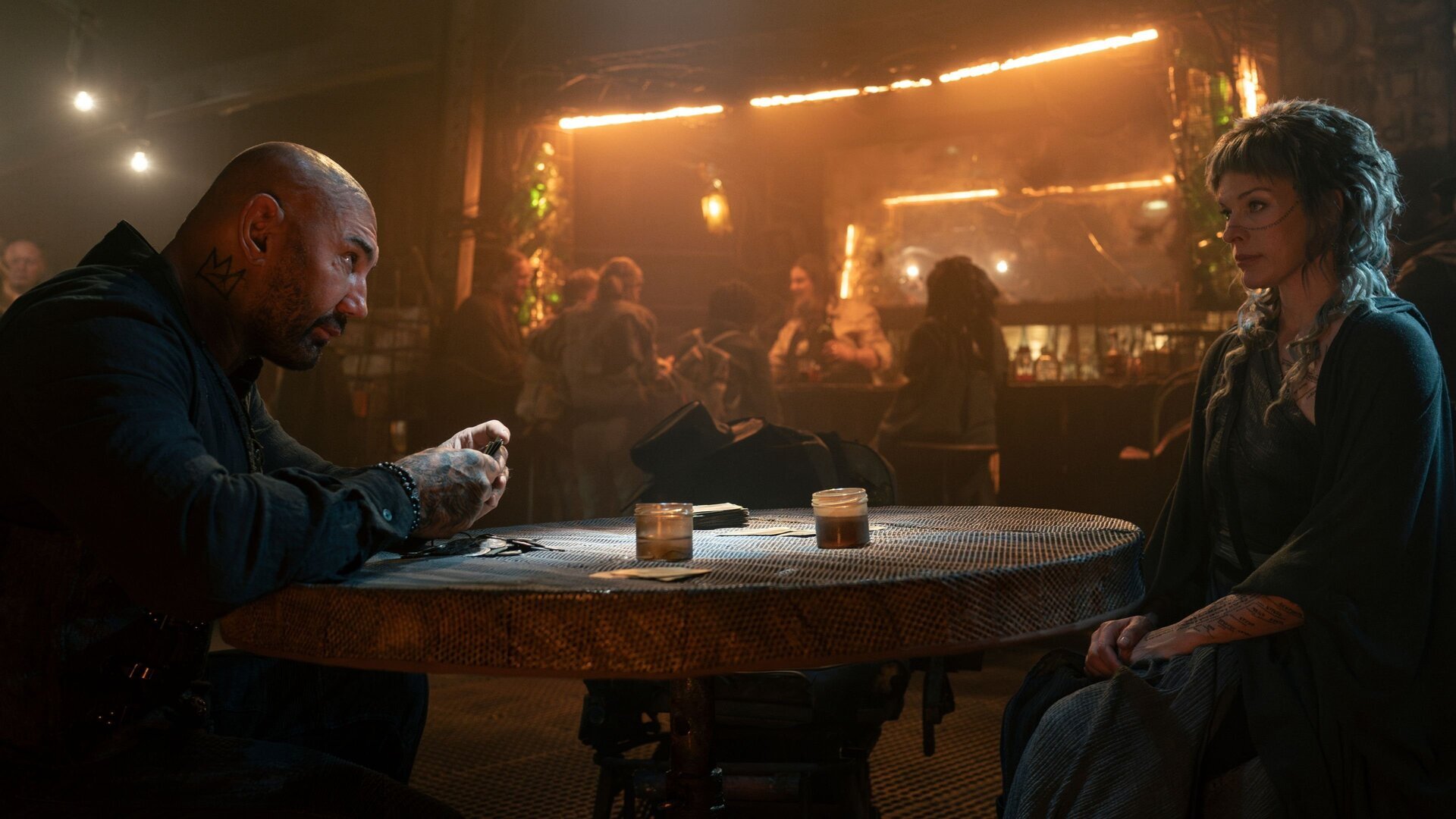
Another Paul W.S. Anderson geeky delirium that reminds me of the edgy fantasy flicks of the 2000s. The CG is more modern, but the same monochromatic color palette, crude worldbuilding, and emphasis on being just a collection of scenes rather than a plot with a coherent sense of vision are all elements still present here.
Still, in these meta-modern times, this genre, if you can call it that, still can’t escape overly cartoony characterizations, characters taking decisions that make no sense, and just being there as functions for the cool scenes to happen.
It’s moderately entertaining. Dave Batista and Milla Jovovich are doing their best with what they’re given, so watch in case you are in the mood for some high(er) budget trash.
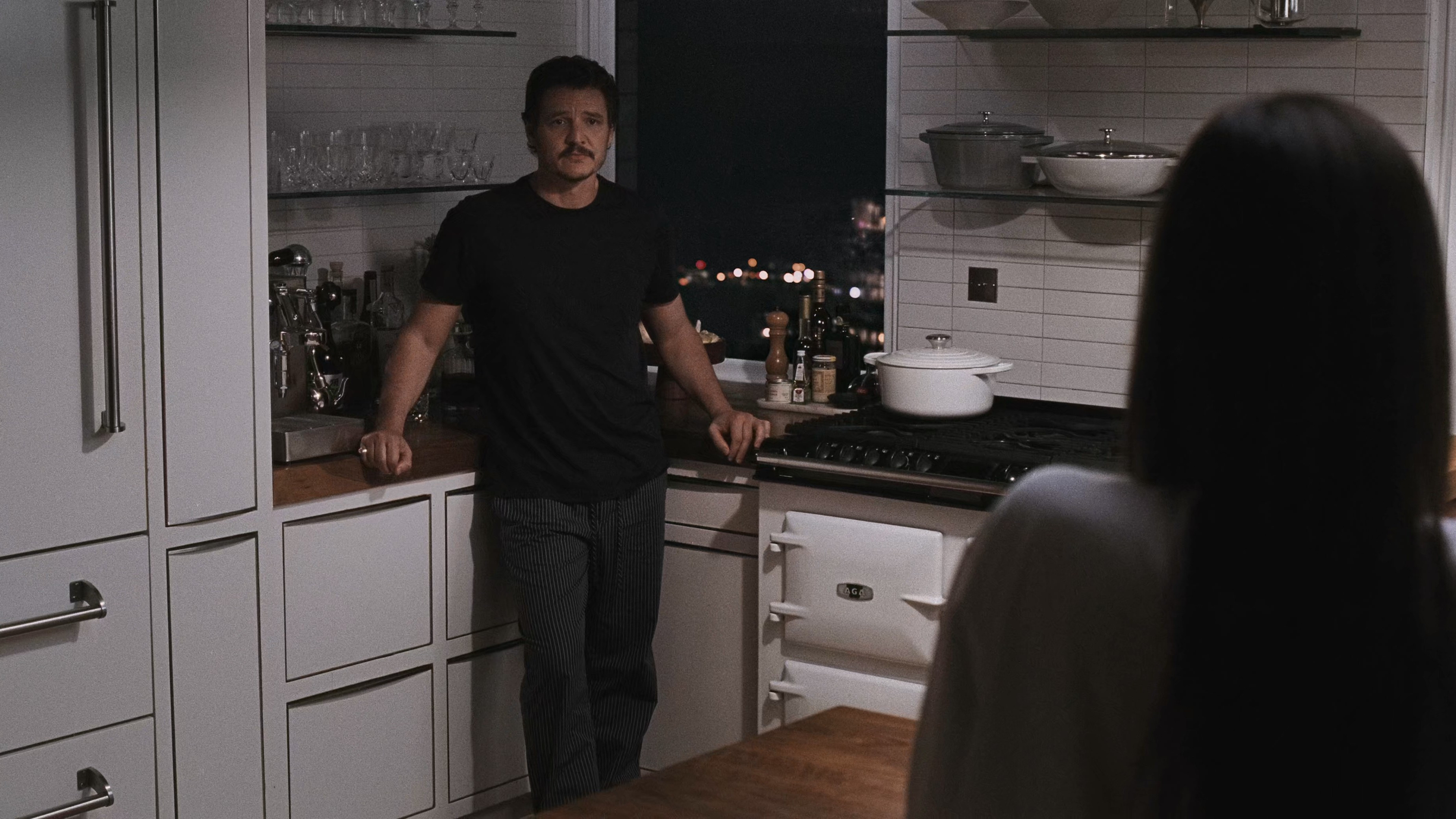
Materialists is an A24 romantic comedy focusing on the modern, market-driven dating culture facilitated by dating apps and the increasing social isolation of the western world.
It tries to get representation of this topic, as the protagonist played by Dakota Johnson is a matchmaker working in New York, acting simultaneously as a storytelling necessity and a characterization of these algorithm-mediated, financially-driven dating customs, it fails to engage meaningfully with any of its themes.
The most frustrating part of the film, and what makes it end up as insulting rather than insightful, is that it builds a fantasy world that doesn’t align with the real topics it’s ostensibly based on, and then ends its runtime failing to have any of its characters dispel this fantasy or learn any real lessons. The opening shot features a caveman giving a cavewoman a christian wedding ring made of braided daisies. Rather than commenting on the absurdity of this worldview, the film presents it at face value.
Johnson’s character conducts her business transactionally. Making a computation of the “value” of male suitors in the “market”, to present to females who not only believe that they need help finding a partner, but that they’re willing to pay good money for that help.
There is a love triangle between the ideal, high value man, played by Pedro Pascal, and the other ideal, high value man (except poor), played by Chris Evans, who is supposed to represent the “true”, non-materialist love.
It’s not exactly a film with many surprising twists. The most surprising thing about it is the utter disrespect with which it appropriates a heavy topic an then decides to handle frivolously.

There is a scene in Red Sonja that starts with a establishing shot of a snowy landscape, going into a warm tavern in the cold town, where Sonja is getting piss-drunk, wearing her iconic armor and a bad ass fur cloak. She is about to to split an apple blindfolded with her dagger as part of a tavern game, when a warrior busts open the door and calls Sonja to adventure. Cue slow motion walk towards the winter landscape.
This is a pretty good, quintessential sword & sorcery scene-setting. Unfortunately, this scene is the post-epilogue coda of the movie. The rest of the film is a pretty bland and tonally weak origin story presenting how Sonja became Red Sonja.
It’s such a wasted opportunity. I don’t understand why the only genre film projects they green light nowadays all have to be origin stories. A character like Red Sonja is at her best when thrown into exciting adventure in medias res. We can get the vague details of her background as we go. We don’t need an entire movie of a proto-Sonja, when we want the actual Red Sonja.
In my opinion this practice pretty much guarantees that a possible movie franchise is killed before it starts, which should be the opposite of what a production company wants and yet, they never learn.
The bulk of the movie itself is alright. As I mentioned, the “what could have been” reveal is left to the end of the film, so the first-time experience of watching it isn’t spoiled by this on top of the other disappointments. It has a very poorly executed self-loathing moment where the characters make fun of the iconic costumes of the source material, but that’s neither here nor there.
It also contrives itself to build a sort of fantasy tech-bro as a villain, adding themes of ecology to the story which is fine, just a tad on the nose. I won’t spoil the twist in the villain’s quest, but it is so cartoonish that feels like an insult to intelligence.
Overall, it’s an entertaining watch, but a sad disappointment as the reignition of the sword & sorcery genre.
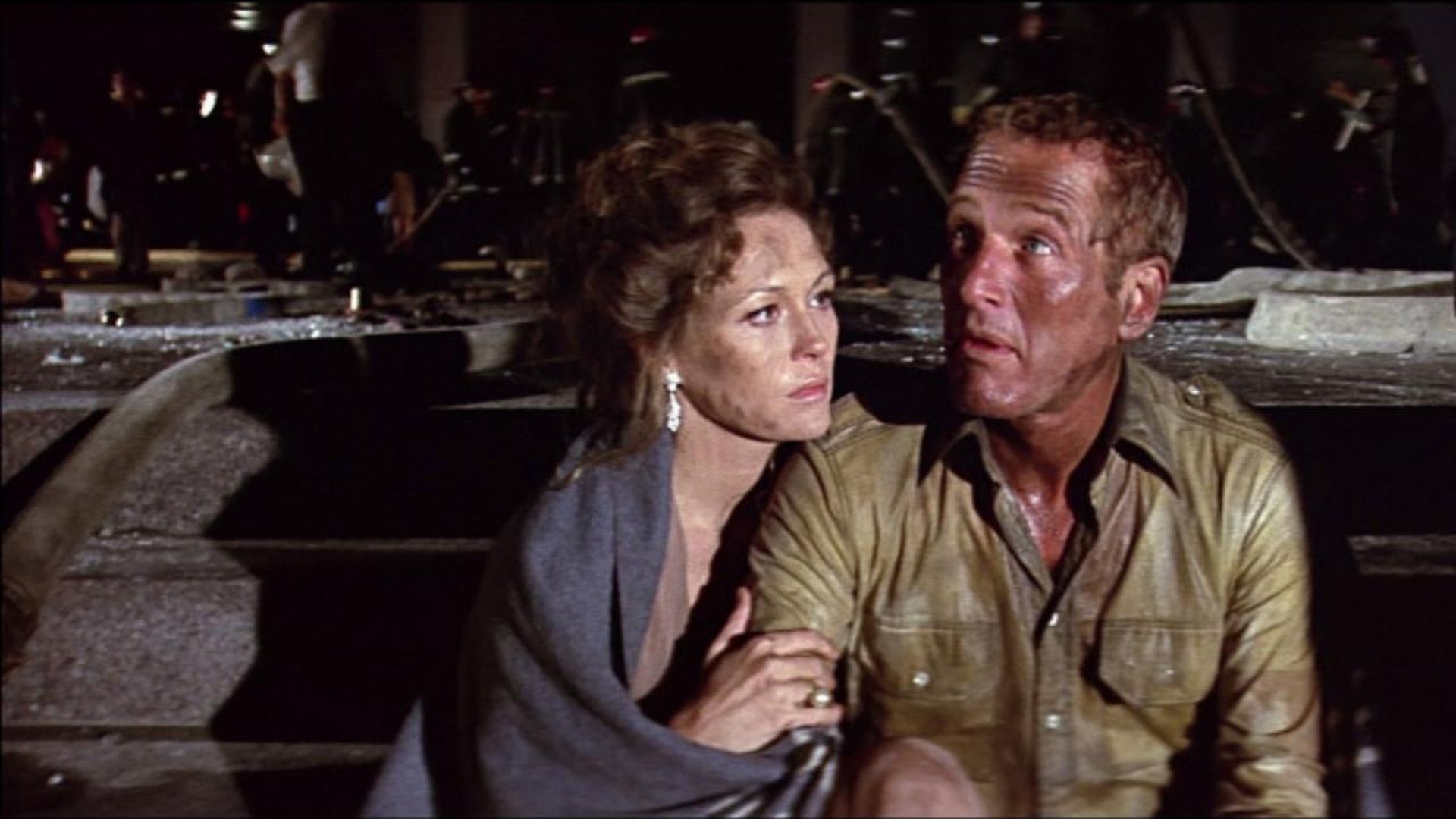
A film I remember being re-broadcast on TV back when I was a kid, I never sat down and watched it in its entirety until now.
It’s straightforward, classic 70s Hollywood. Looks great, has a star-filled cast, awesome setpieces and, for the time, pretty cool special effects.
It has aged really well too. I never felt the pacing was overly slow, boring or meandering, and the storytelling is spot-on. Not a perfect movie by any means, and you have to watch it with understanding of the technical constraints of the era but if you do, you’re in for an enjoyable time.
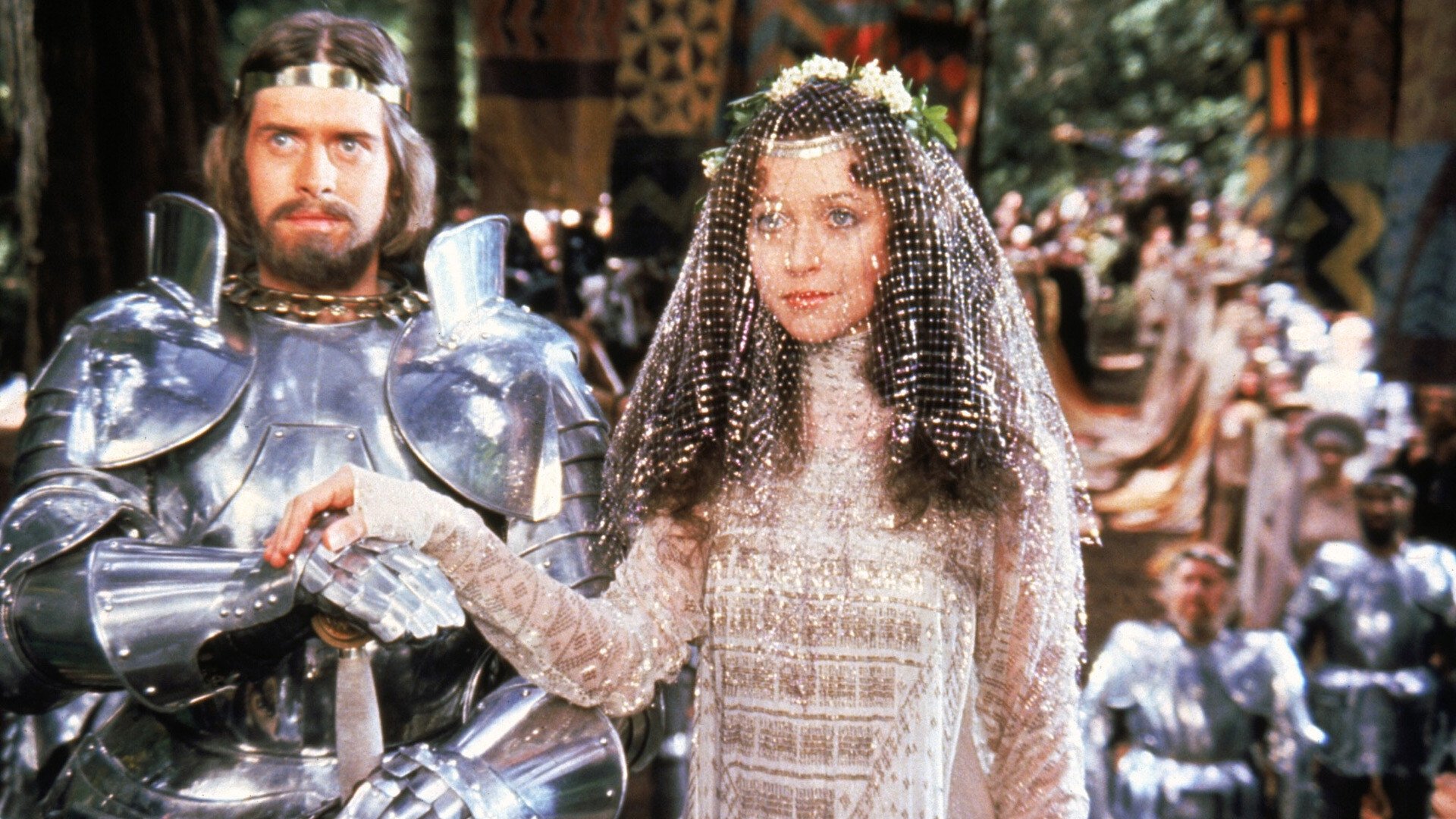
Towards the end of the year, for some reason, I got into an Arthurian kick. I became curious about The Great Pendragon Campaign, Greg Stafford’s massive campaign for his Arthurian RPG, Pendragon, with over 80 in-game years worth of knightly adventuring.
It was pretty fun to watch Excalibur while reading The Great Campaign in tandem. Seeing how the iconic scenes were interpreted by each author in their own media. The Great Campaign even has a section that’s pretty much taken exactly as-is from the beginning of Boorman’s Excalibur, and the game recommends watching the film as well.
An aesthetically striking adaptation of Mallory’s Le Morte D’Arthur, I’ve been aware of this film since I was a child. The epic tone and dramatic, dreamlike presentation are of little interest to a young kid, so I never sat down to watch the whole thing when it was on TV. As an adult though, I greatly enjoyed it.
Let’s get out of the way that I wholeheartedly recommend the film, if you are able to adapt to the visually lyrical presentation of 15th century English literature.
What I found intriguing about my experience was the contrast about how I felt about the film as a kid and now. Goes to show how even when a work of art is older than yourself or you don’t connect with it right away, you can always come back and experience it when the time is right.
For example, I used to think the version of Merlin in the movie looked goofy. Likely influenced by the Gandalf-esque pointed hat depictions of the magician in other media, the shiny skullcap he wears here looked out of place. Now that I have a much wider background on paganism, hermeticism and druidic culture, and watching the film in its original voice-over, I find Nicol Williamson’s one of the most delightful portrayals of the legendary sorcerer.
So, if you bounced off of this film before. Even —especially— if it was a long time ago, give it another chance. It might surprise you.
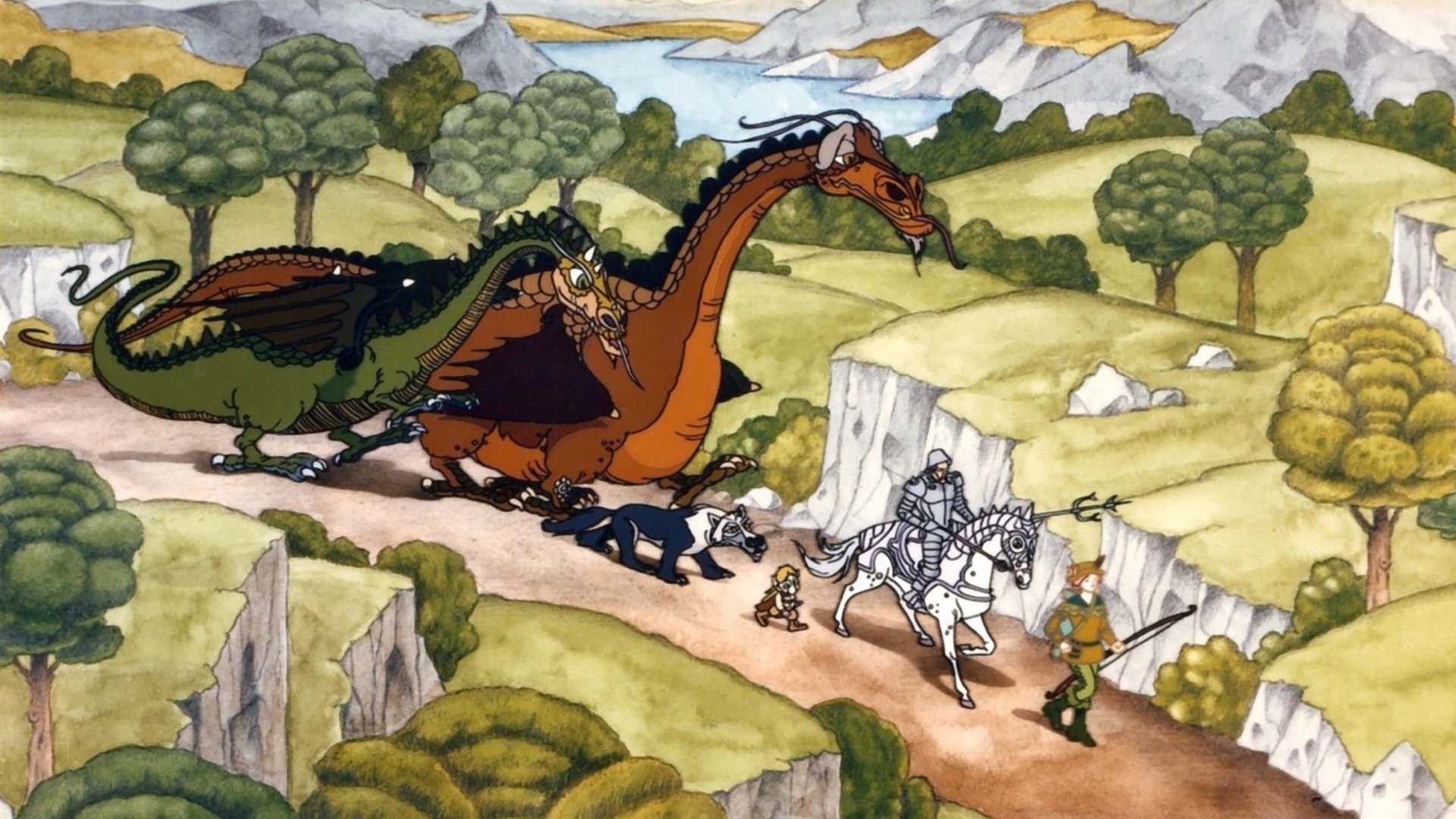
This one is as much the opposite of a recent watch as you can possibly get, as it is one of the tapes I watched the most as a kid. I was so young, I didn’t even know it was from Rankin/Bass productions. I didn’t even know what Rankin/Bass was!
But it resurfaced on a social media post, and it prompted me to rewatch it in a new light. Of course, as a kid I watched the dubbed version, which has a charm of its own, and delightfully poetic localization that sometimes elevates the original. On the other hand, the original version has James Earl Jones and Harry Morgan on the voice cast.
The film itself is an animated adaptation of a mashup of two books: The Flight of Dragons by Peter Dickinson, and The Dragon and the George by Gordon R. Dickson. It’s a pretty interesting setup since the plot structure comes mostly from the latter, but the speculative biology of dragons explained in the movie is lifted from the former. The main character’s name is also Peter Dickinson.
It’s not what we would now consider a kid’s cartoon, but it’s definitely genre fantasy. A fable, but with death, loss and themes about magic vs science (which feels insanely refreshing compared to the trite religion vs science we’re historically used to). It’s an excellent example of a genre of animated film that vanished for a long time, although I’m told it’s making a comeback in the form of prestige TV serials.
In any case, if you want some classic animation with an old school adventure quest, and a catchy opening sung by Don McLean of American Pie fame (the song, not the movie series), don’t sleep on this one.
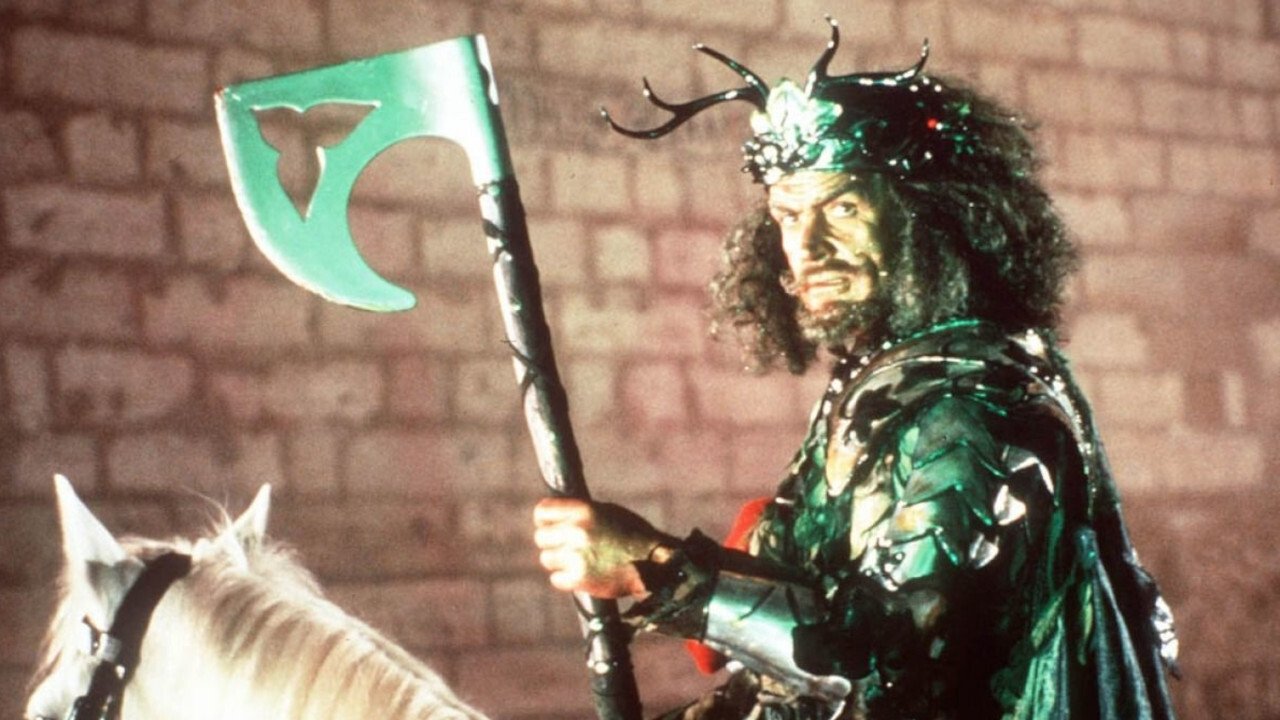
A very (read: very) loose adaptation of the Arturian legend of Gawain and the Green Knight that, from what I can tell, is mostly used as a sort of public domain starter base for a classic 80s medieval adventure film.
It’s entertaining, for sure. Even the strange dream logic of its structure works in its favor. More than plot it delivers cool setpieces one after another so, if you are in the mood for that, it is a pretty good “see cool shit on the screen” kind of movie. Nothing deeper than that.
Features Sean Connery in the role of the Green Knight, with an unfortunately awful character design (that armor…) but the rest of the production looks pretty good, especially for a lesser known film from the era. A fun time.
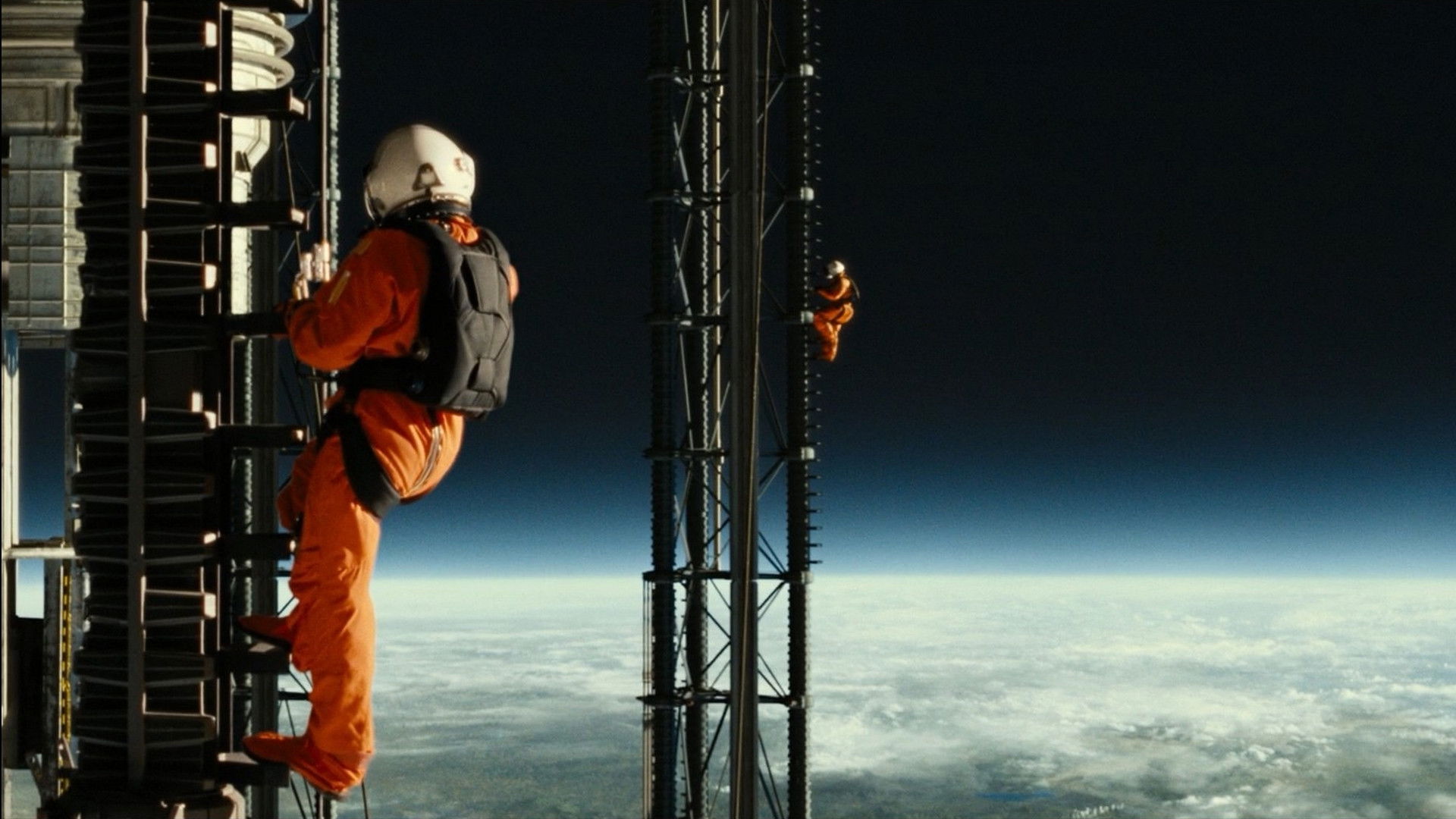
This is a strange one. From the start, you get the sense that this is going to be a slow-paced SF story with heavy, contemplative scenes conveyed through Hoyte van Hoytema’s gorgeous visuals. And then: shootout chase with pirates on the surface of the moon! Fight carnivorous space monkeys! Have a fistfight with the crew!
These action scenes get interjected in a way that’s for the most part, pretty jarring with the rest of the movie’s tone. It’s like there is a tension between making a contemplative, hard SF story with themes about humanity, purpose and communication, and a Hollywwod action blockbuster.
The result is pretty odd. I wouldn’t say the movie tries to do two things and fail at both, but it does try to do two things in conflict with each other, and the action side definitely compromises the more meditative part. Not enough to ruin the whole, but one wonders how much executive meddling happened to the script during production to make it more actiony.

An ambitious (commercially, not artistically) romantic comedy that doesn’t quite land.
I was not familiar with the director’s name, Kogonada, before I went to see this film. Once I searched a bit, I saw that he’s responsible for films like A24’s After Yang, which I haven’t watched yet but heard great things about. After the movie, I checked some reviews —something I rarely do— because the end result seemed pretty lackluster for such an acclaimed indie director. There was pretty much consensus of displeasure about this movie.
The fact is, the film is a pretty dull romantic comedy, quirky and fantastic as it may be, that doesn’t feel driven by a unified vision. Instead, it feels more like someone took a group of marketable hashtags and made a checklist out of them. Fantastic, evocative storyline? Well crafted visuals? Acclaimed director (who turns out was involved in directing only, not editing, which is apparently a pretty crucial point), somewhat trendy and recognizable leading stars? Yeah, all checked.
The biggest problem with the film is that it feels soulless. The leads, Colin Farrell and Margot Robbie, don’t have chemistry in their roles. The visuals feel like they were crafted trying to imitate an aesthetic, rather than coming from some genuine artistic decision. The plot is serviceable, but with all the surrounding elements failing to coalesce, ends up falling flat.
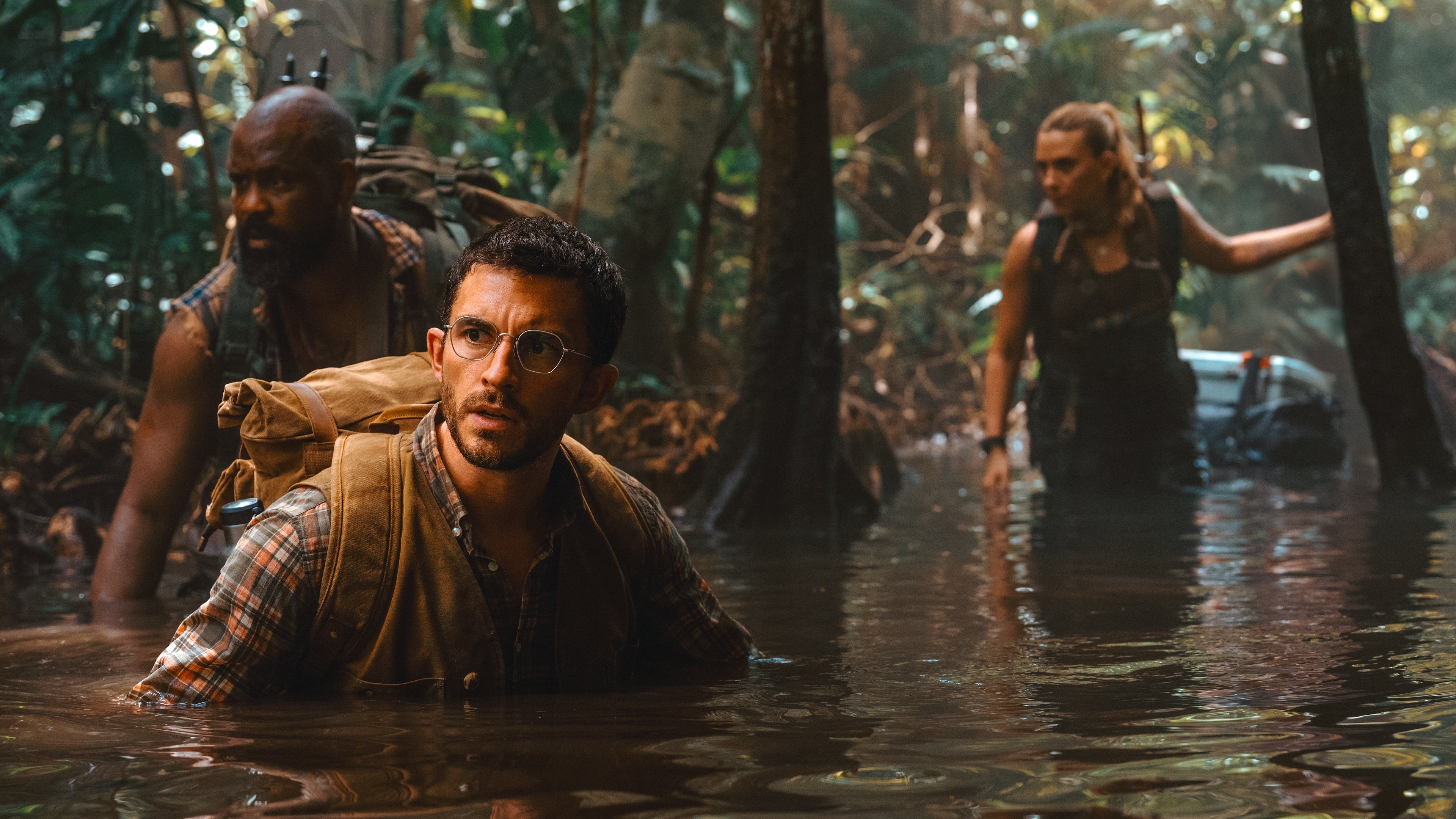
Is there any point to more Jurassic movies being made, other than as tax shelter film-making? I guess not. We are witnessing the final breaths of the Marvelization of cinema. And the few movie stars that remain, like Scarlet Johansson here, get some nice paychecks out of it while it lasts.
As for the movie itself, it’s top to bottom slop: Lazy setup, introduction of a new mutant dinosaur (because there must be some legal requirement for every new entry in this franchise to have a dinosaur that outsizes the one from the previous movie), and a bunch of uninspired setpieces that look less believable than the original 90s films due to the abuse of CGI backgrounds.
The plot structure is intriguing, at least, but nearly every movie nowadays is, so that’s hardly worth mentioning.
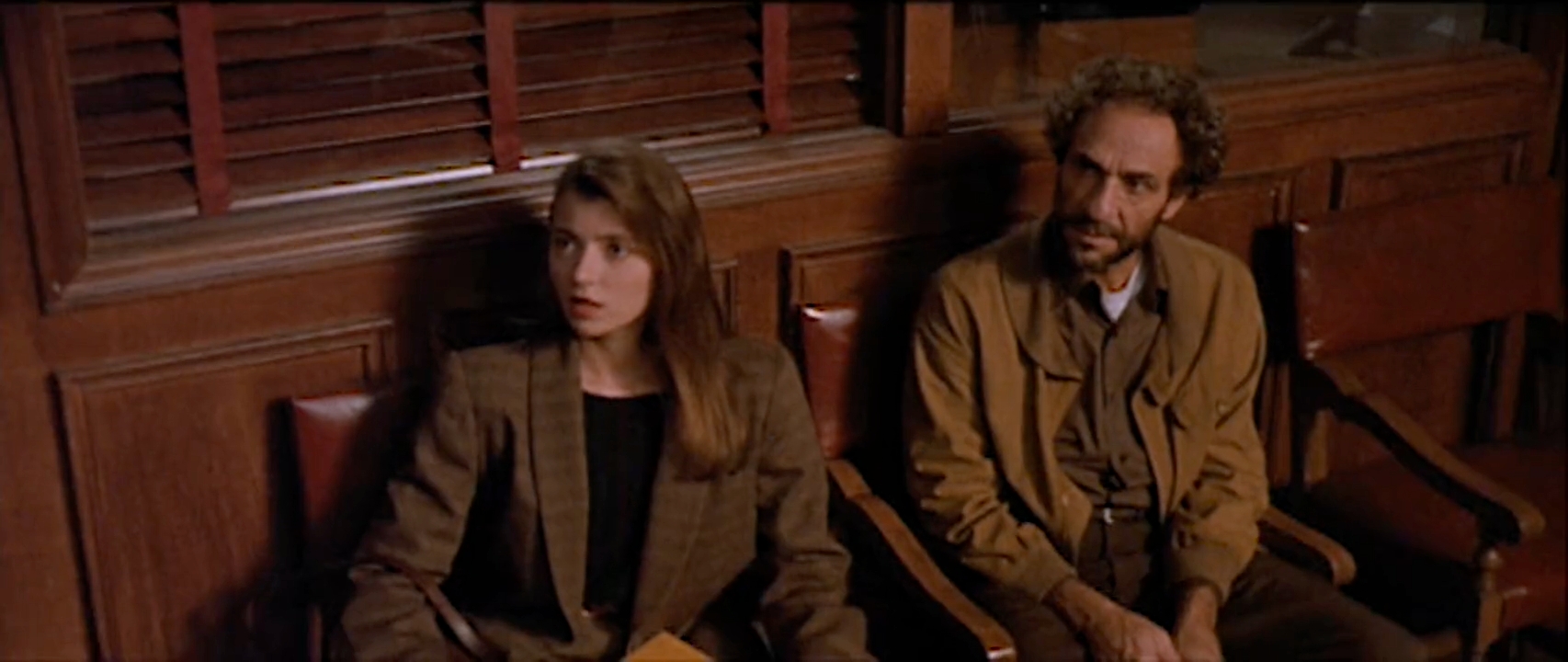
Little known telefilm centered around a prestigious fencing school where an old man arrives to find work as a coach. The master of the school, a successful athlete and fencing champion named Villar, rejects his style and takes him as a janitor instead.
What follows is a sort of slice of life film as we see how the janitor, Max, gains more status within the students of the school, and his past with Villar gets progressively revealed.
Cinematically, it’s nothing to write home about, but it’s well shot, and as a previous practitioner of fencing myself, I was pretty impressed with the accuracy with which the movie depicted the activities in the fencing salle. If you grant some license to film tropes like the actors fighting without their masks on, the rest is a really accurate depiction of what a training at a fencing school feels like.
Other than that very niche aspect, I wouldn’t necessarily recommend it, though.
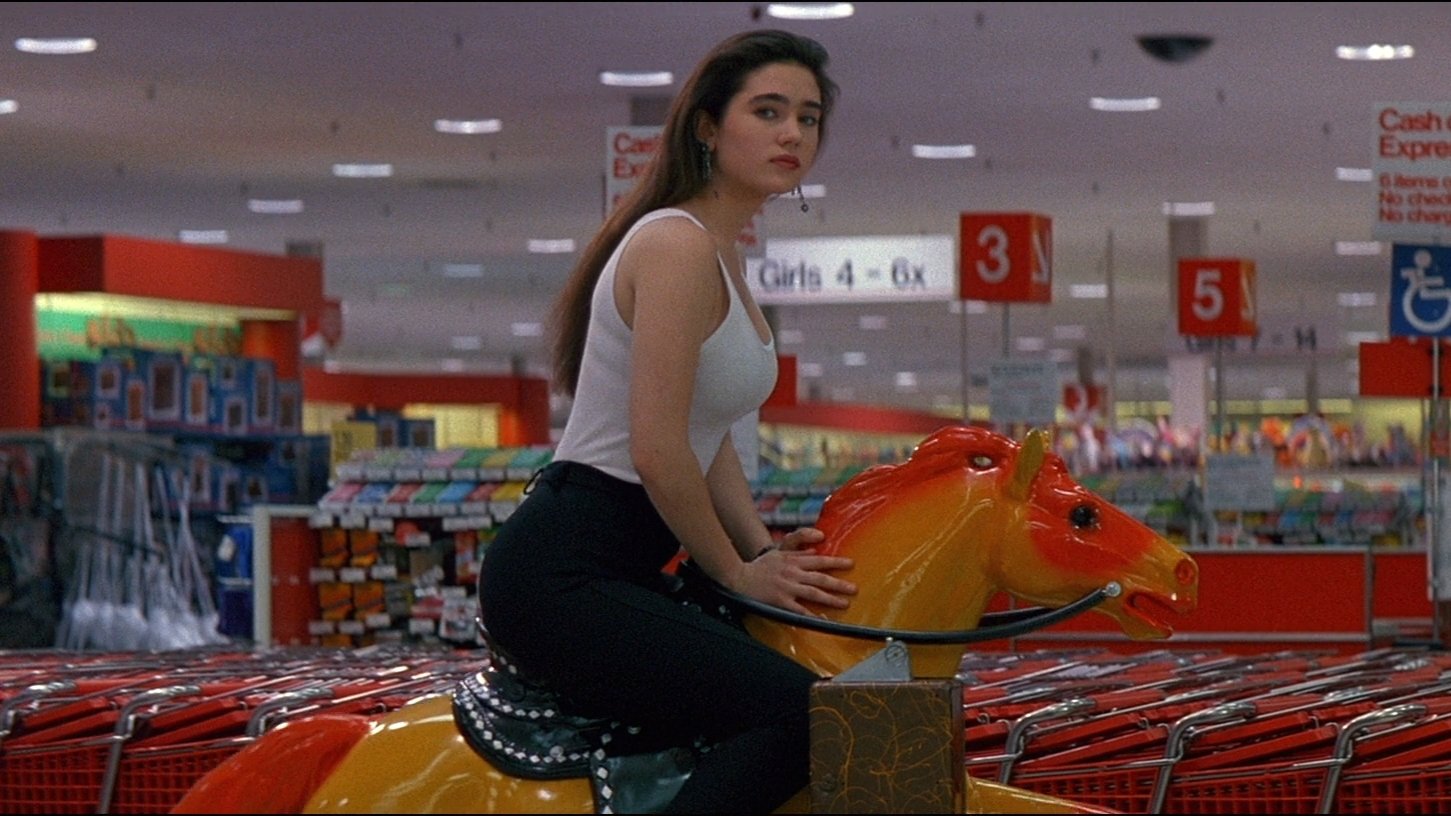
This was not a well-known film when I was growing up. I think it got somewhat popular in some Retro New Wave circles because lots of music video remix YouTubers like to use the iconic scene of Jennifer Connelly riding the mechanical horse in their nostalgia remixes.
In practice, the movie is clunky, kinda bland. There is no connection established among the main characters other than their stereotypes, e.g. Connelly is the rich girl, the protagonist played by Jim Dodge is the skill-less fast-talking slacker that I guess Americans found likable at the time? Without having seen Ferris Bueller’s Day Off, I get a vibe that the protagonist here is the same archetype as the titular Ferris Bueller.
And I’m probably not far off, because the script was written by a John Hughes way past his prime. Long behind in his career are things like The Breakfast Club and Pretty in Pink. Here he was already firmly in his Home Alone and Dennis the Menace era, and you can tell.
Other than a strangely out of place dialogue scene in the middle of the movie that hits pretty well, the rest of the movie is riddled with nonsense, plot holes, contrived scenarios and the worst crime of all, lack of soul. It simply doesn’t connect.
Some retro iconic visuals aside, it’s not a good movie, I’m sad to say.
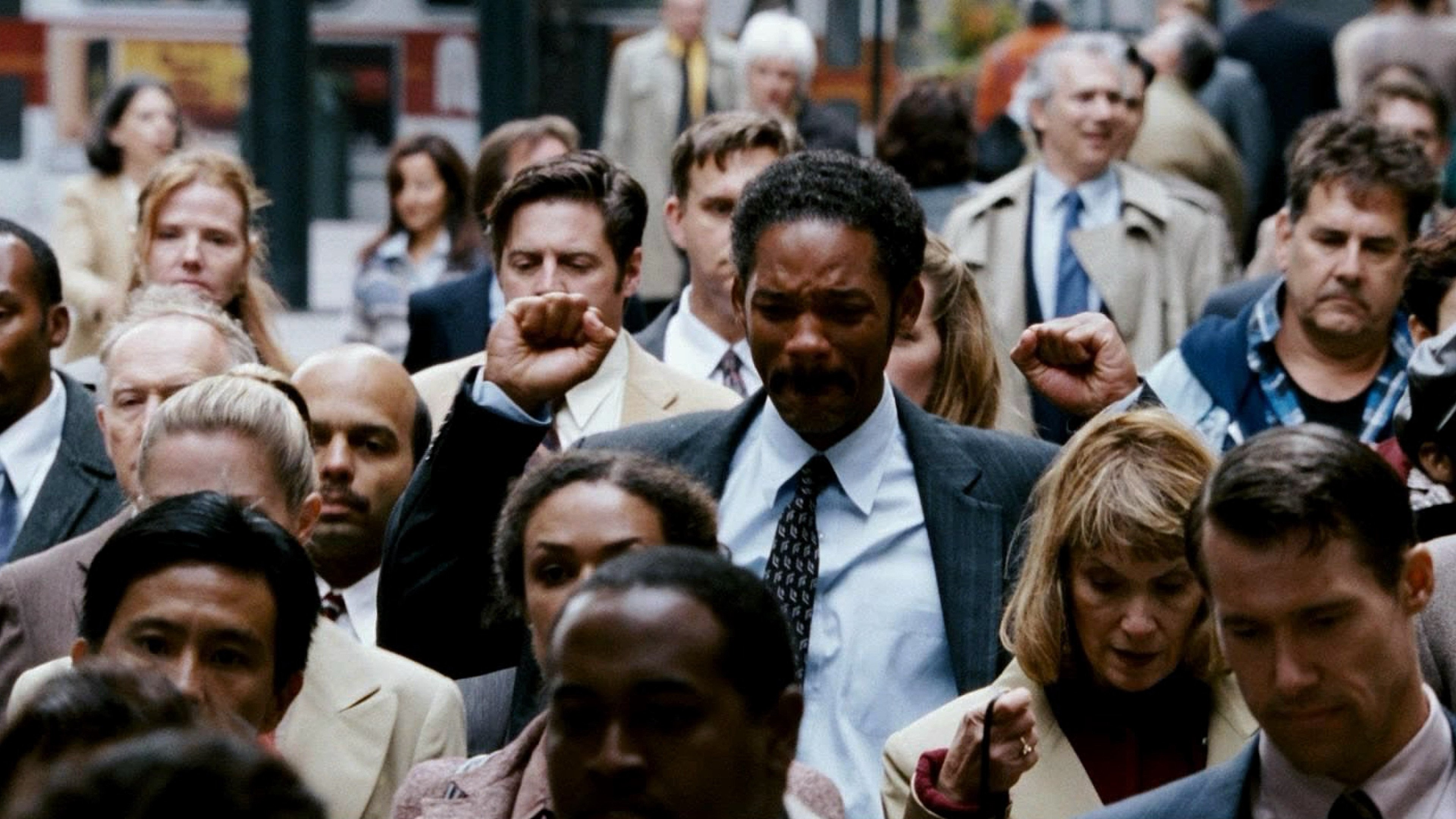
I really, really hated this one. I only knew it before from some random clips of scenes, but never actually sat down to watch the entire thing.
It’s a story based on real events, presented as a feel-good story about perseverance and hard work finding its deserved reward. What we actually get is 90 minutes of misery porn capped off with a ham-fisted “life lesson” ending. It offended me deeply.
I seriously doubt its message could have been taken seriously in 2006. Twenty years later, it’s downright laughable. It just highlights the arbitrary organization of our society, and focuses on all the wrong things, to the point where it feels like propaganda. I haven’t felt such a strong rejection for a movie in a longtime, but this one goes too far into the opposite type of morality that I like to see.
Unfortunately, my hopes were wrong because, looking at user reviews of this movie, one sees an alarming amount of positive ones.

Pretty average period comedy where a debunker of spirit mediums —working as a theater magician himself— tries to help uncover a possible scam act, but in the process finds himself unable to rationally unmask the culprits.
The idea is fine, but the execution really isn’t quite that succesful. The main aspect that jumps out is how out of place the music is. Not for being anachronistic, quite the opposite, but for how forced it is, inserted without really matching the scenes it accompanies.
More subtle flaws include the lack of emotional buildup, partly the fault of the lack of chemistry between the lead characters, and the pretty flat payoff at the end. Come on, Mr. Allen, if you don’t make genius cinema, what’s the point of acting like one?
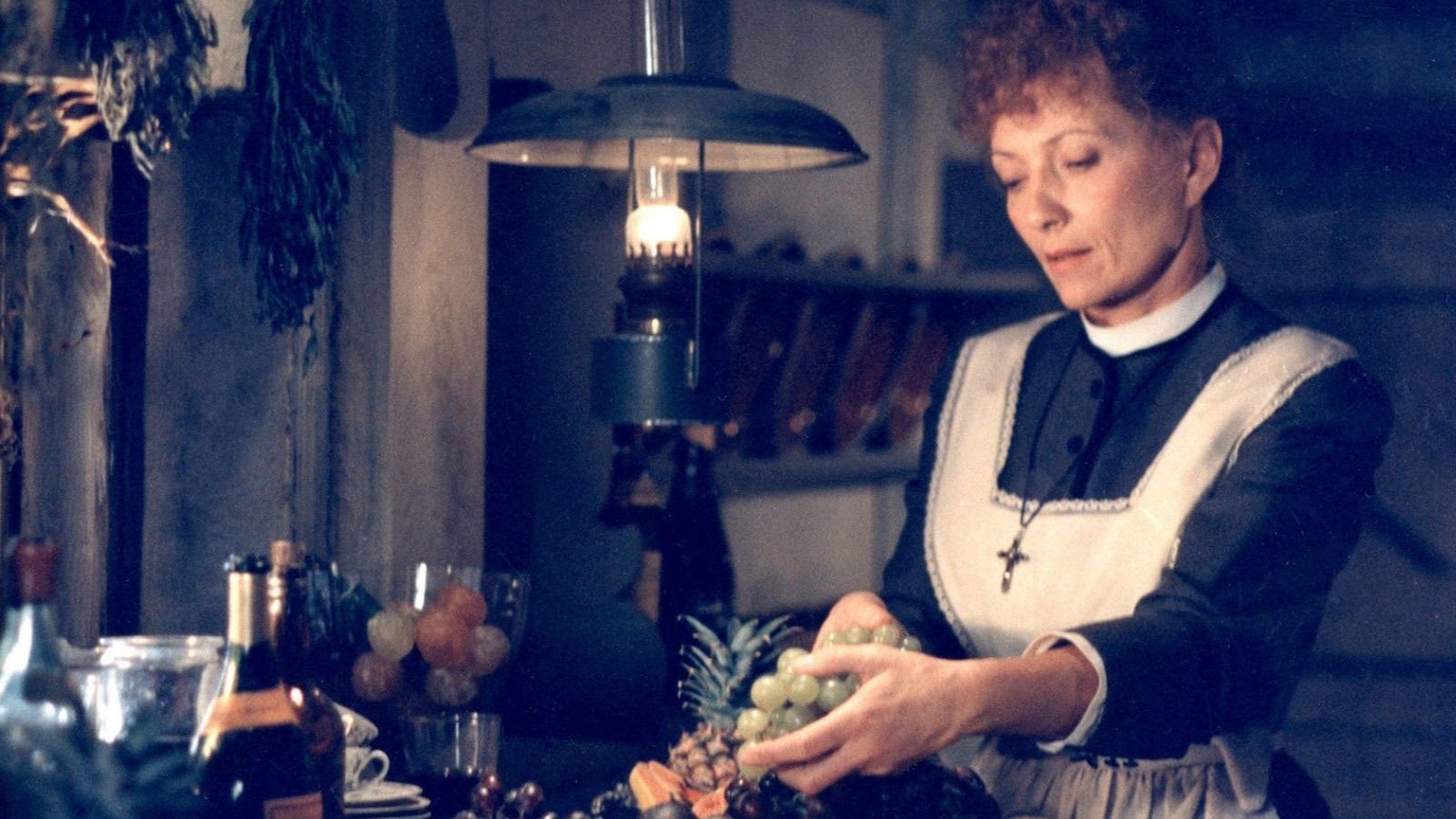
Alright, so you may see the 3 stars, but these come with a heavy caveat.
I enjoyed this movie but (on first watch) I didn’t understand it. Its explicit message is the opposite of what I was expecting of the movie, and I left disappointed after it ended. This may very well be because I missed something subtle that subverted it, or perhaps the cultural milieu of the era didn’t allow the author to make their real message more explicit.
Whatever the reason, the movie remains a joy to watch. A drama of manners, if you will, depicting life in a poor, hyper-religious fishing village in Denmark where a French woman, Babette, ends up after fleeing the Paris Commune.
She lives day to day with two sisters who also get background development, their stories contextualizing Babette’s actions when she wins a lottery prize.
I won’t spoil more for now. I think coming into the movie knowing a bit of what’s about can, in this case, ease viewers into sticking with it, but I also don’t want to reveal too much.
My conclusion is that I need to analyze the film further and perhaps do a second viewing to validate my initial impressions.
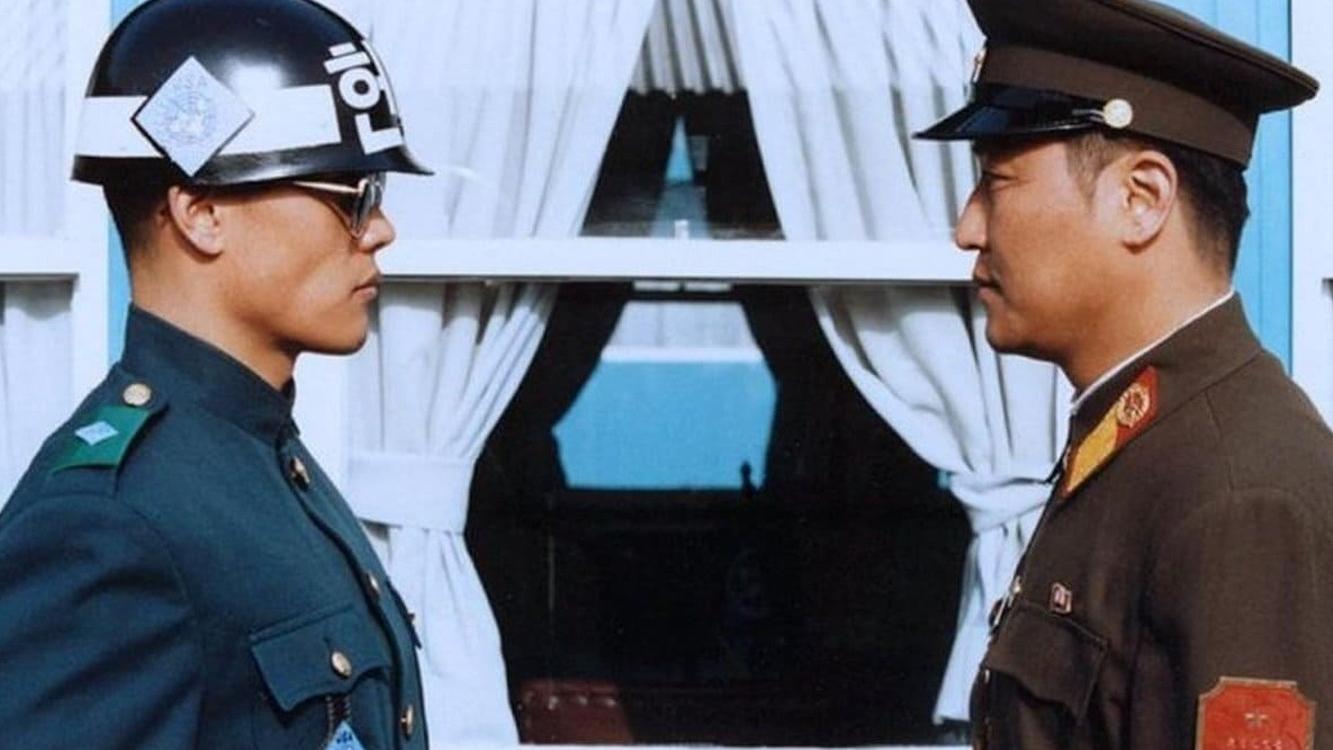
This one isn’t a first watch, but I hadn’t talked bout this film before. On rewatch, I realized I forgot a lot about it.
It’s one of Park Chan-wook’s less known works, perhaps because it predates his vengeance trilogy, and the synopsis looks a bit less glamorous, but it’s a fantastic film.
Based on the novel DMZ, we follow a Swiss-Korean agent sent to investigate the killing of two North Korean soldiers near the demilitarized zone at the border between the two Koreas. The Swiss delegate is there to ensure the investigation of the facts remains impartial.
The investigation works as a framing narrative to present, as a flashback, the tale of the events that really transpired between the guards of the DMZ.
A straightforward, but thematically and dramatically powerful film, which Korean cinema and Chan-wook in particular excel at. Highly recommended. Two thumbs up and three stars.
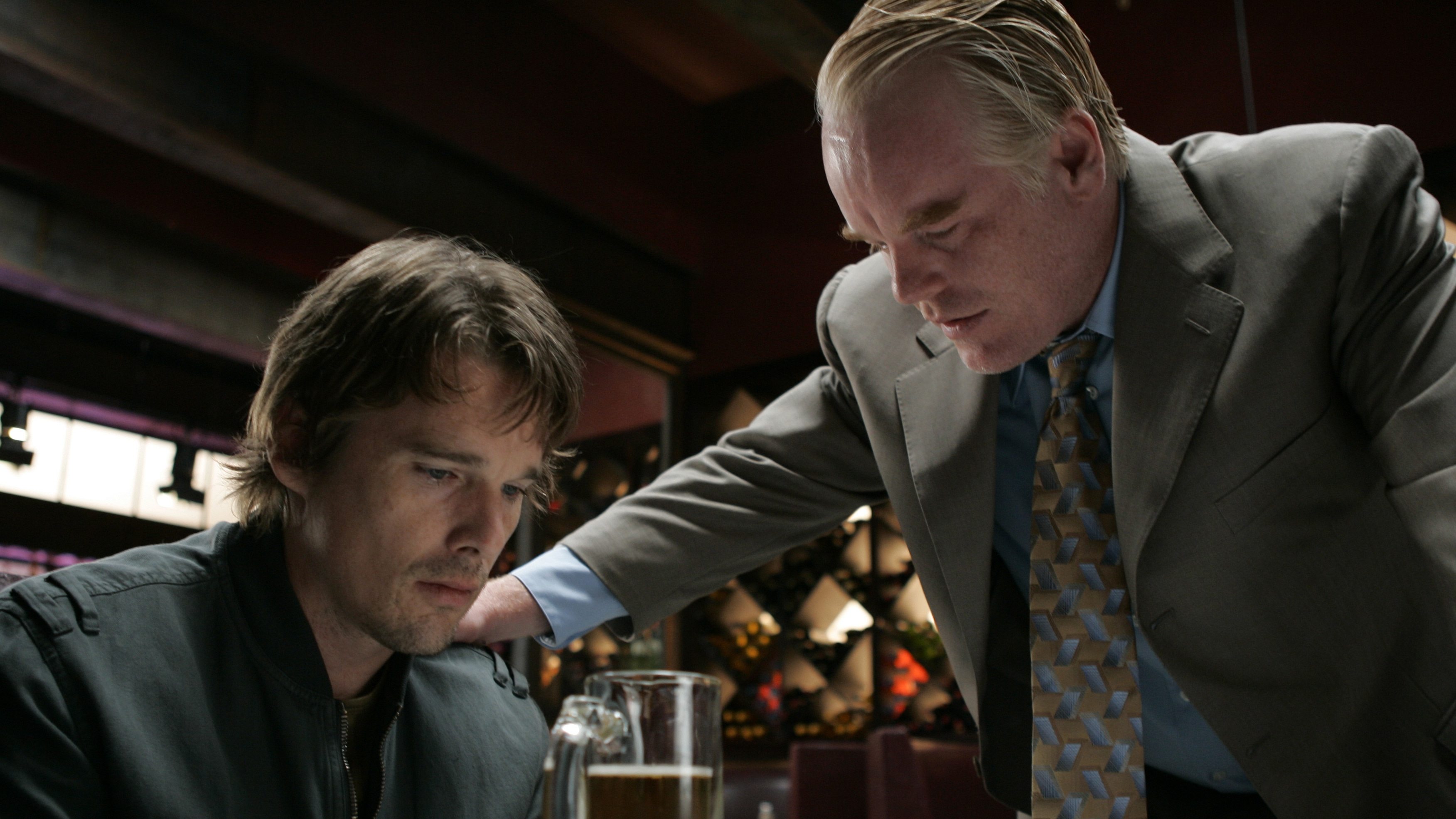
A solid thriller from Sidney Lumet, released only 4 years before his death.
The robbery of a mom-and-pop jewelry store goes wrong, and the whole heist is botched horribly. What follows is a series of flashbacks revealing more and more details about the hit, and the people involved, in an escalating spiral of crime and violence.
Great performances, especially from Ethan Hawke and Philip Seymour Hoffman in the lead roles.
The structure is reminiscent of Tarantinean thrillers, in the way it’s presented out of chronological order and relies on time jumps to convey the narrative. Nowadays it’s no longer a novel stylistic flair, but it’s appreciated nonetheless.

Like I mentioned, I have been in an Arthurian kick lately. This is another adaptation of the 14th-century romance of Sir Gawain and the Green Knight. More serious and artsy than Sword of the Valiant, but no less liberal in its interpretations. It’s an A24 production, after all.
I had mixed feelings about the film. Despite its low budget, the aesthetics and visuals of the film are really good. Dev Patel is fantastic in the role of Gawain who, unlike in the poem, has not yet been knighted and is somewhat of a lazy libertine. I have to admit that making the character start as a dissolute loser makes his growth more interesting to watch.
The Green Knight here is depicted more as a supernatural, monstrous figure than anything resembling a human knight. The whole presentation is more visually lyrical than prosaic and straightforward. This reaches its climax at the ending of the film, which I found awesome and powerful. It really drew a dry laugh out of me at a time when I wasn’t convinced yet about the film’s merits.
Some other changes, I’m not so sure about. The writer/director definitely put a lot of himself into the story. The choice to replace Morgana Le Fay with Gawain’s mom as the summoner of the Green Knight is certainly a telling choice.
Overall, if you can get past its self-serious tone and enjoy the vibes, it can be a worthwhile watch.
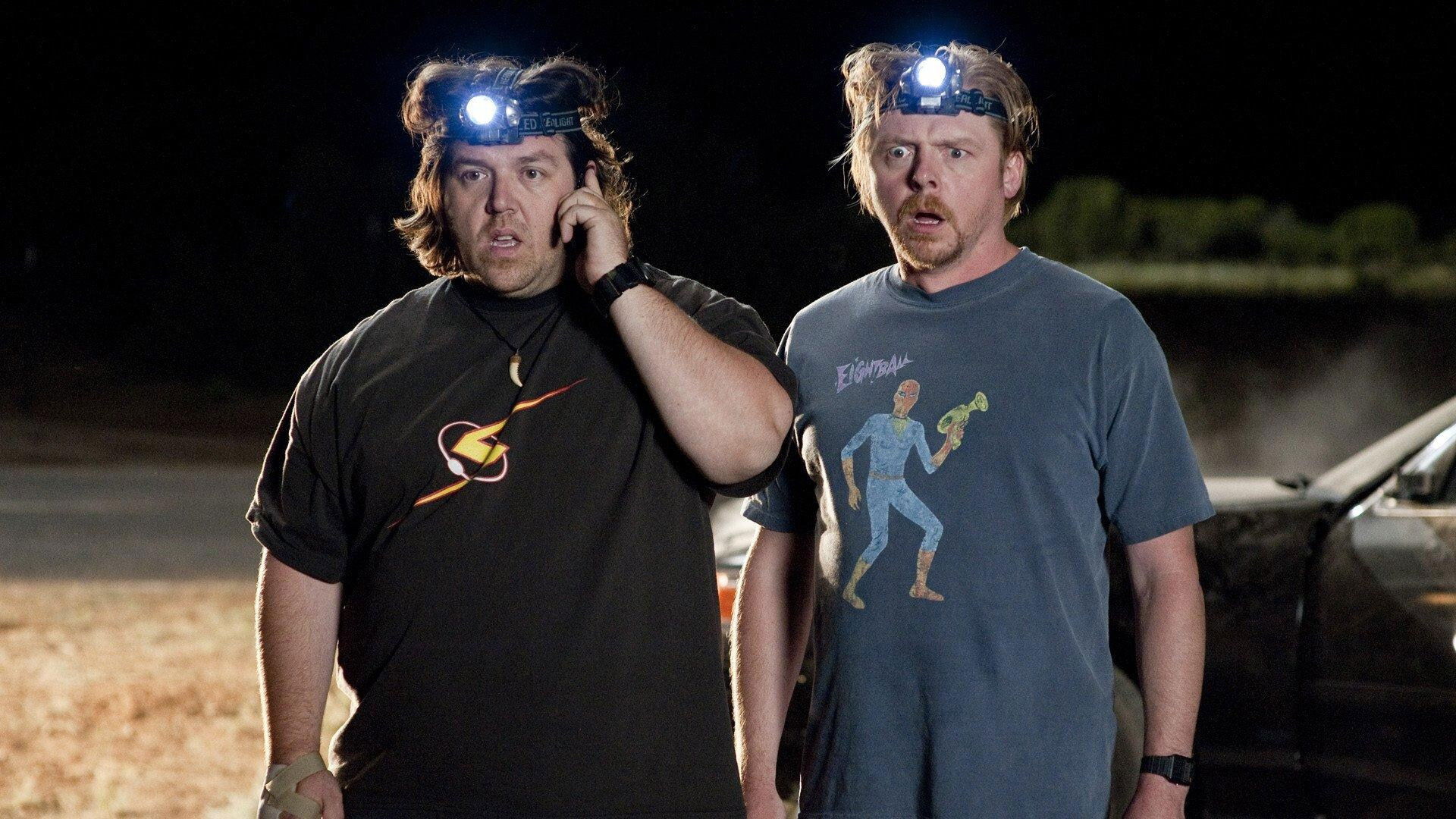
So, given the cast here (Simon Pegg, Nick Frost), I totally thought at first that this was a movie by Edgar Wright (you know, the ice cream guy). But it’s not! It’s by Greg Mottola.
That’s not a bad thing at all, though. It brings a similar energy to Adventureland while, of course being more fantastical. It’s a story about two UFO nerds who go on a road trip through the USA and meet with an actual escaped alien.
It would have been easy to make the alien (the titular Paul) into an obnoxious mascot character, and while the humour is crude, it still keeps enough restraint to never cross that line.
Below this main premise there is a very human, layered plot. If you know Mottola’s work, you’ll be aware that he’s not into the whole nerd-bashing game that the Hollywood elites have been so aggressively pushing lately (their agenda and motivations are just now being slowly unraveled, I’m afraid). It’s not the pinnacle of comedy and doesn’t capture the warmth of something like Adventureland, but it’s a decent time.

I took a long time to get around to this one, and I wasn’t very sure about it at first, but I’m glad I did. It’s from back in 2012 and features an ensemble cast of Korean and Hong Kong actors and celebrities. It’s amusing to see Lee Jung-jae, of Squid Game fame in a role almost 10 years before becoming internationally recognizable.
If I’m not mistaken, it is a South Korea-Hong Kong production. Most of the cast play professional thieves from different criminal groups, who get together for one big heist to steal a diamond. The movie shifts from blockbuster heist story to police “mole” movie to classic Hong Kong action over the course of its runtime, and keeps getting better and better. In the context of a blockbuster for mainstream audiences, anyway. Don’t expect any transformative masterpiece of cinema, but a light, entertaining and pretty well made flick.
Not sure if I’m out of touch, or missing something or what, but this is pretty much the same story as Avatar 2, except they meet the volcano tribe instead of the island tribe.
I don’t mean “the same” literally, of course. There is continuity with where the characters left off in the previous film, with our Mary Sue-adjacent boy Spider as the one who receives most of the character development this time. However the story beats, set pieces and general vibe are pretty much a carbon copy of the previous movie.
The subtle details, like shying away from firearms much less, and being more violent overall without really adding any cool new mechs, are barely noticeable. And the new “twists”, like a tribe of Na’vi allying with the human-run operation on the planet aren’t explored thoroughly enough in their consequences to be meaningful.
It really doesn’t feel like a sequel that took three years to write. It feels more like a series of snippets of plot left over from the previous movie, and recycled into a sequel.
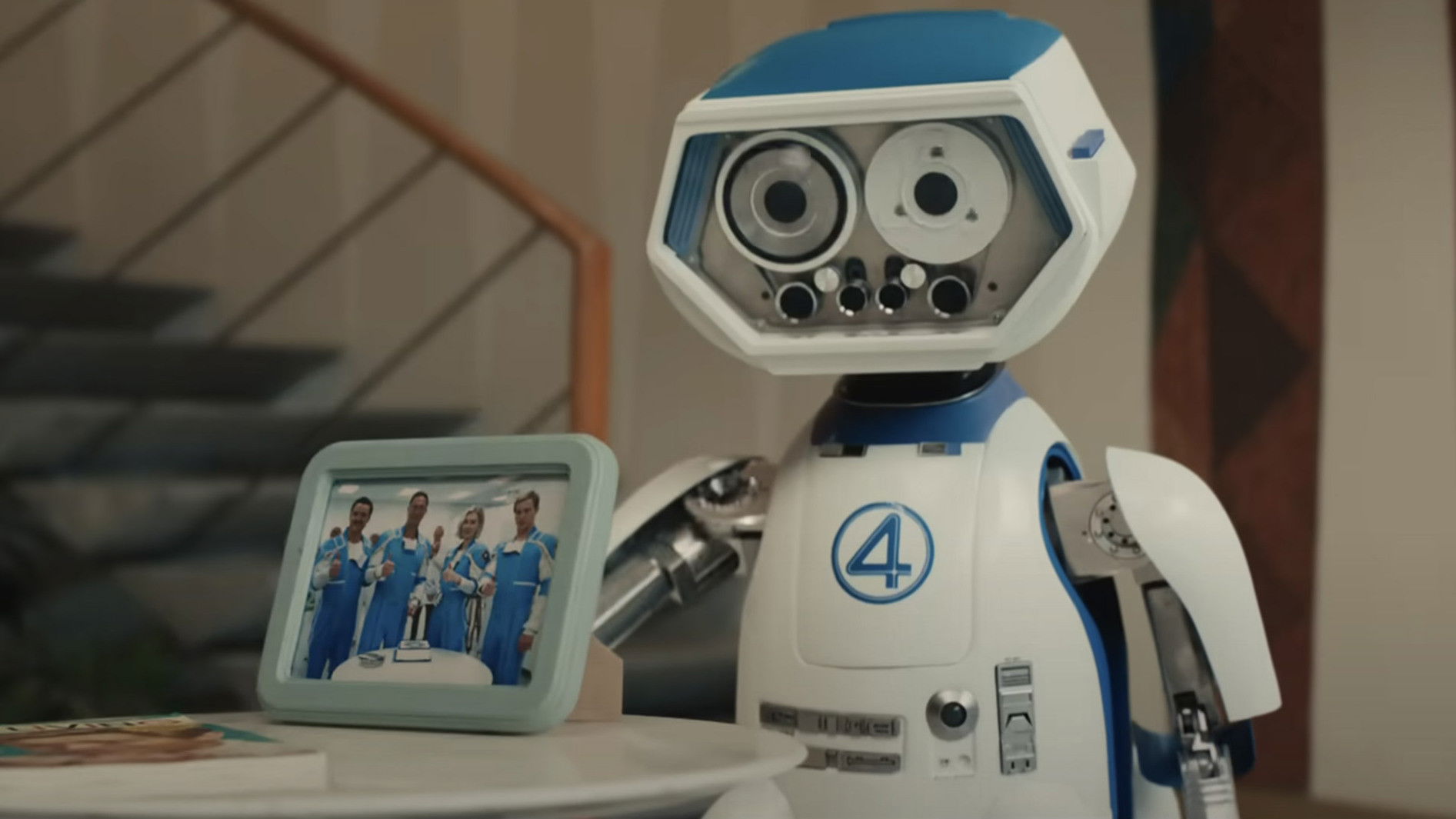
I spent some time on long-haul flights this December, and I’m always seeking bad movies to watch on the plane. I do this because it sucks to pick a good movie and watch it in the less than ideal environment of a plane cabin. The Fantastic 4: First Steps looked like the perfect candidate.
So, all throughout this movie’s theatrical run, I kept seeing posts that basically depicted this movie as “the good one”. A return to the universal appeal and quality of the first MCU movies. I was game for that.
By the time the movie ended I exclaimed: “Was that it? Is this what they consider good now?”. And it’s sad to learn that they do.
Anyway, onto the movie: basically it takes place on one of the alternate universes from Marvel where the Fantastic 4 are the undisputed leaders of the entire world. Whatever they say goes, and they can mobilize all the world’s governments and funding to their whim, with zero accountability. Despite all that power, they fail to stop Galactus, and have to rely on outside help. The End.
Absolutely terrible.

We watched this one because it was popular in Netflix. Yes, a mark of quality if there ever was one.
To be fair, the movie was entertaining. It starts immediately as a speculative disaster movie, which is a bit lazy, but then it turns into something else. I don’t need to spoil the “twist” for you, but if you start watching and are a bit genre-savvy you’re going to deduce it soon anyways.
I don’t want to call it a complete waste of time, because you can watch it till the end and be entertained, but at the same time, you could also watch nearly anything else and get a better experience.